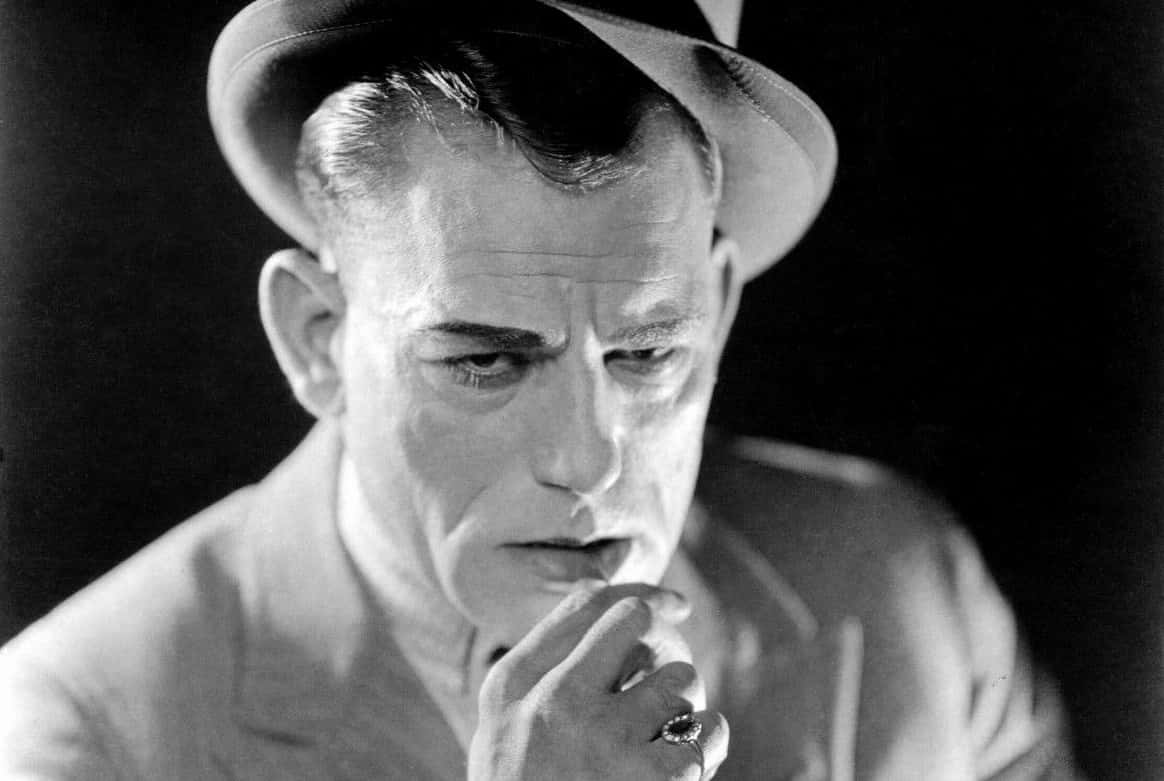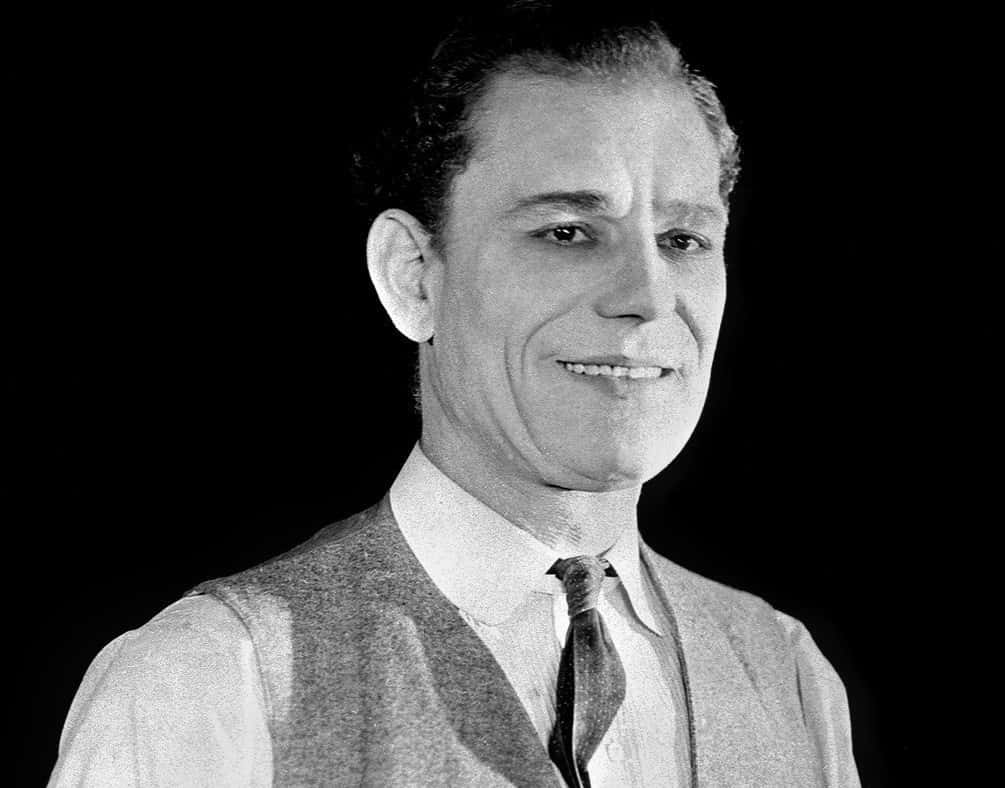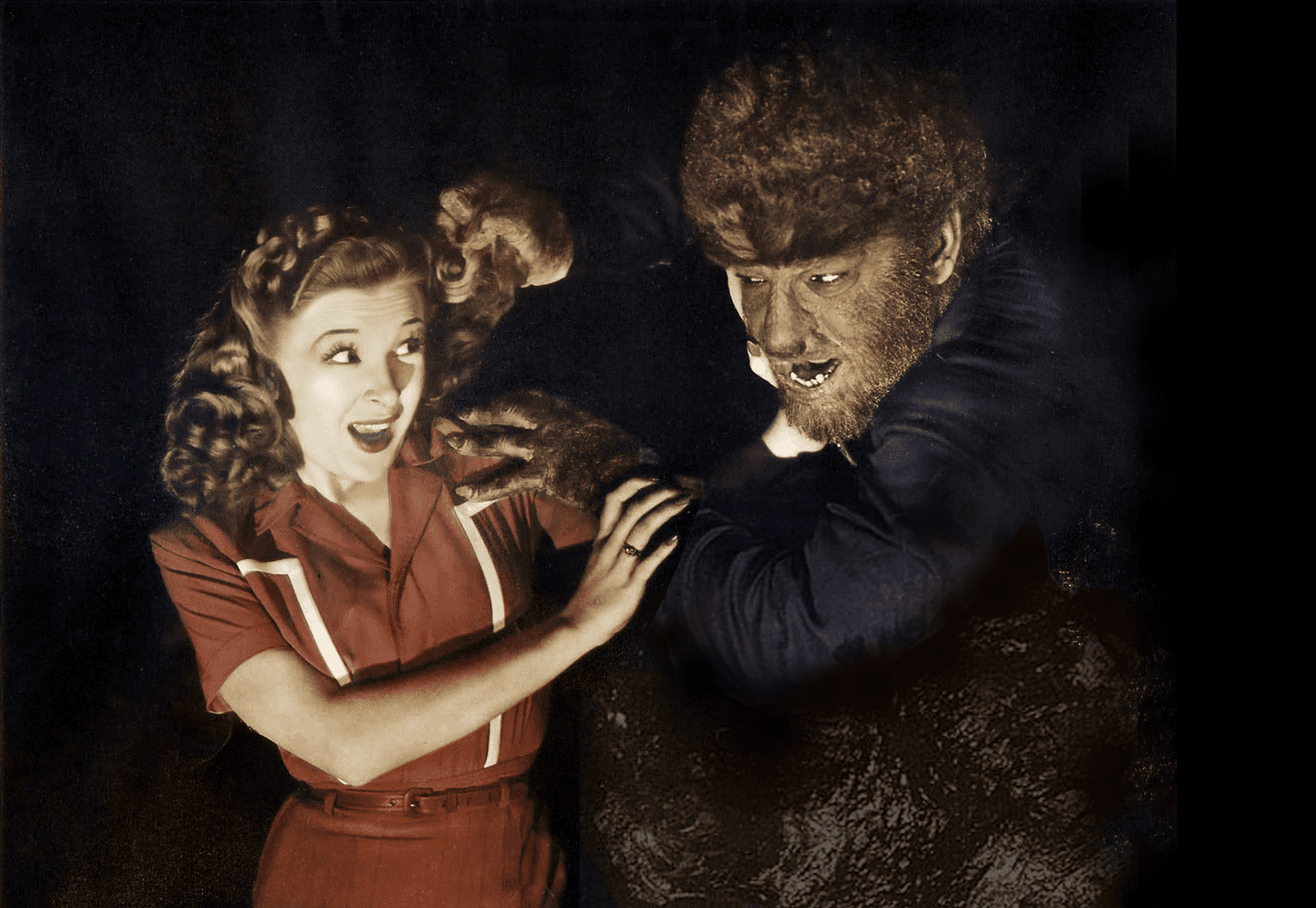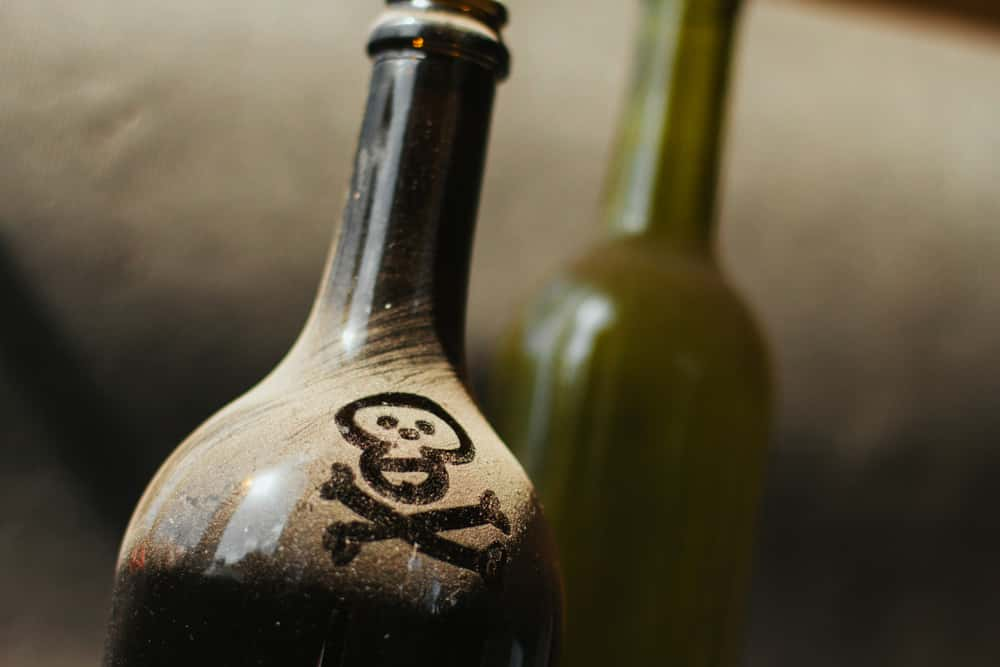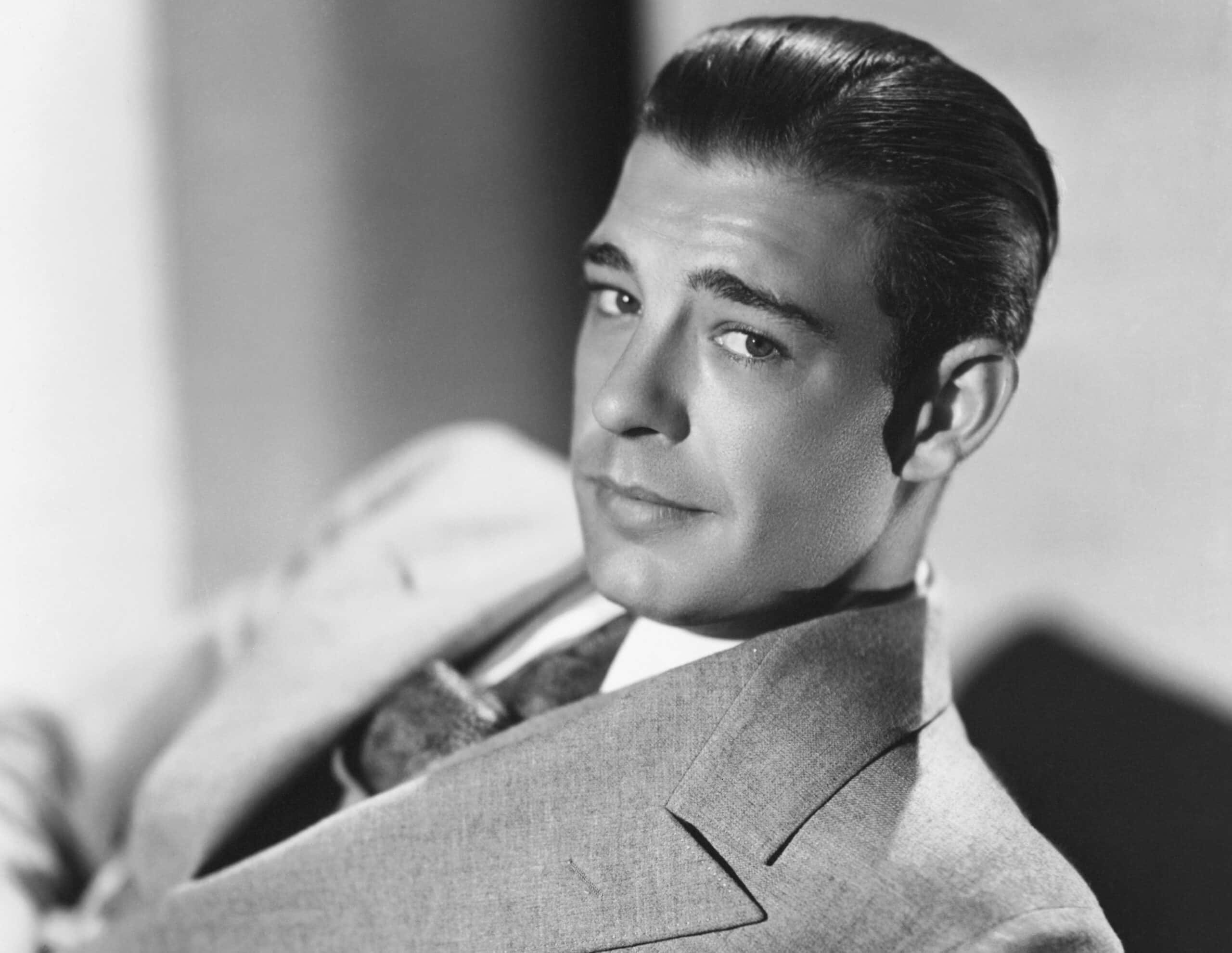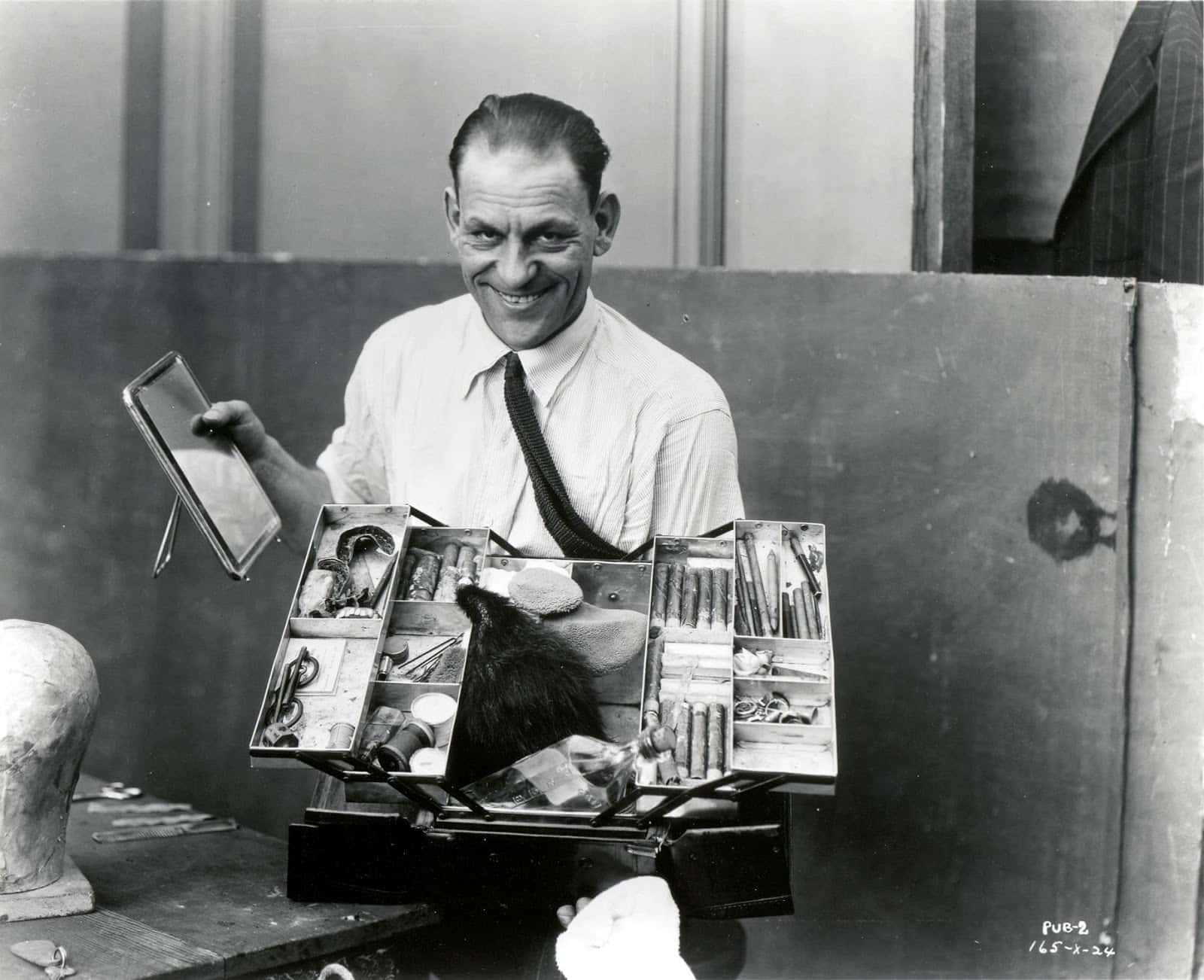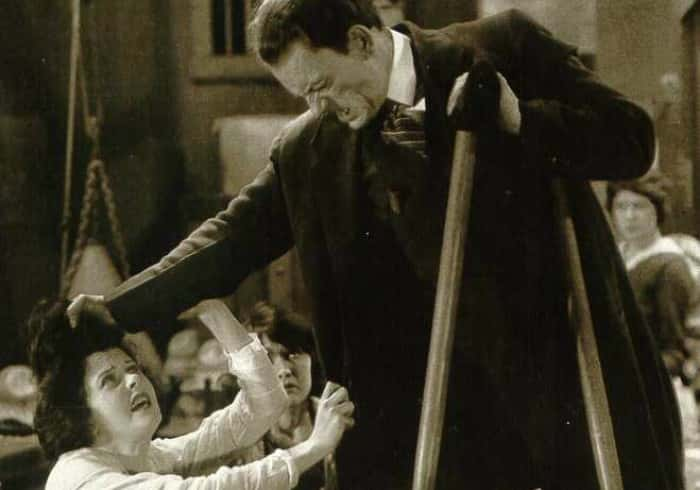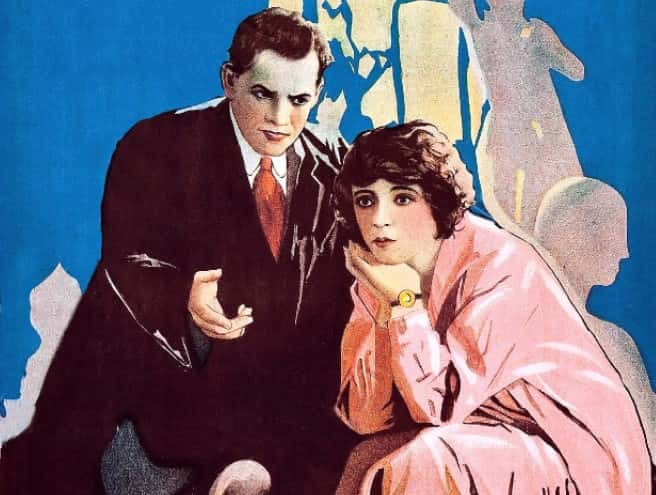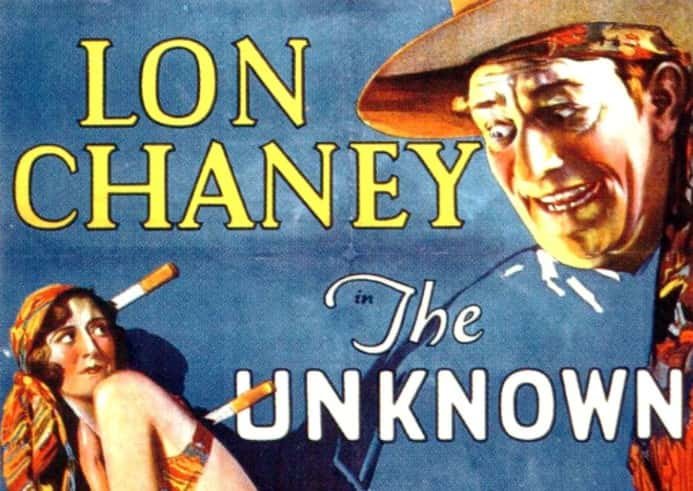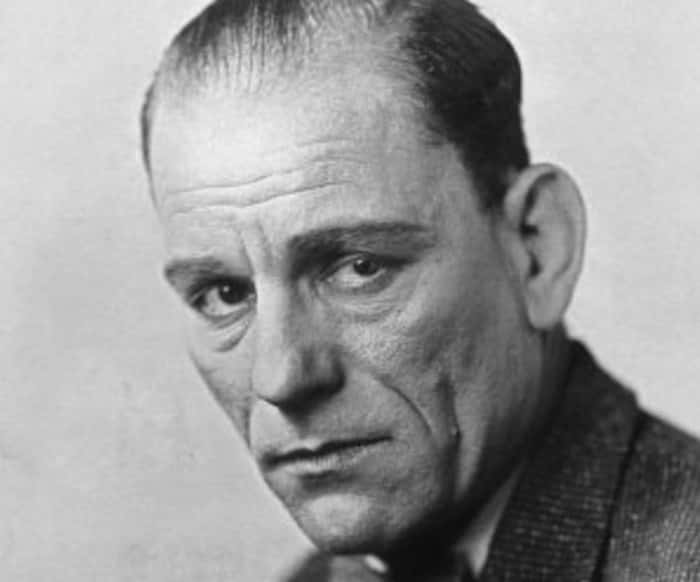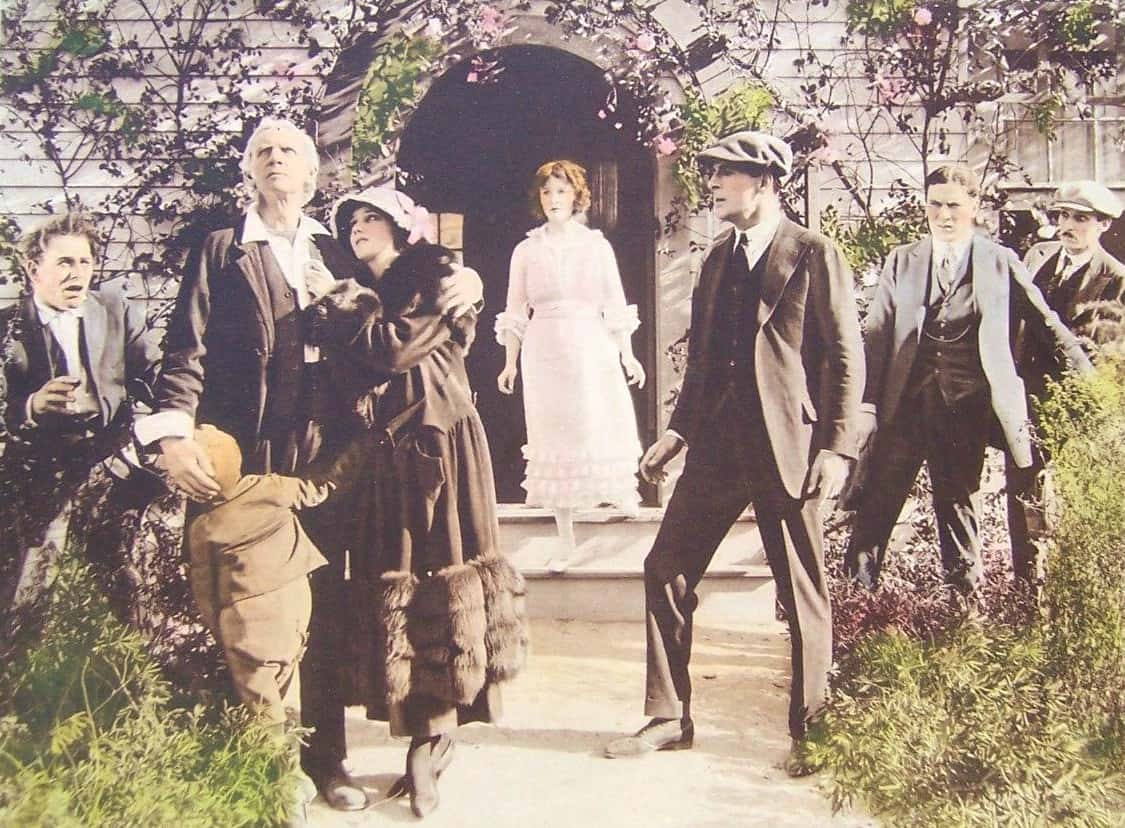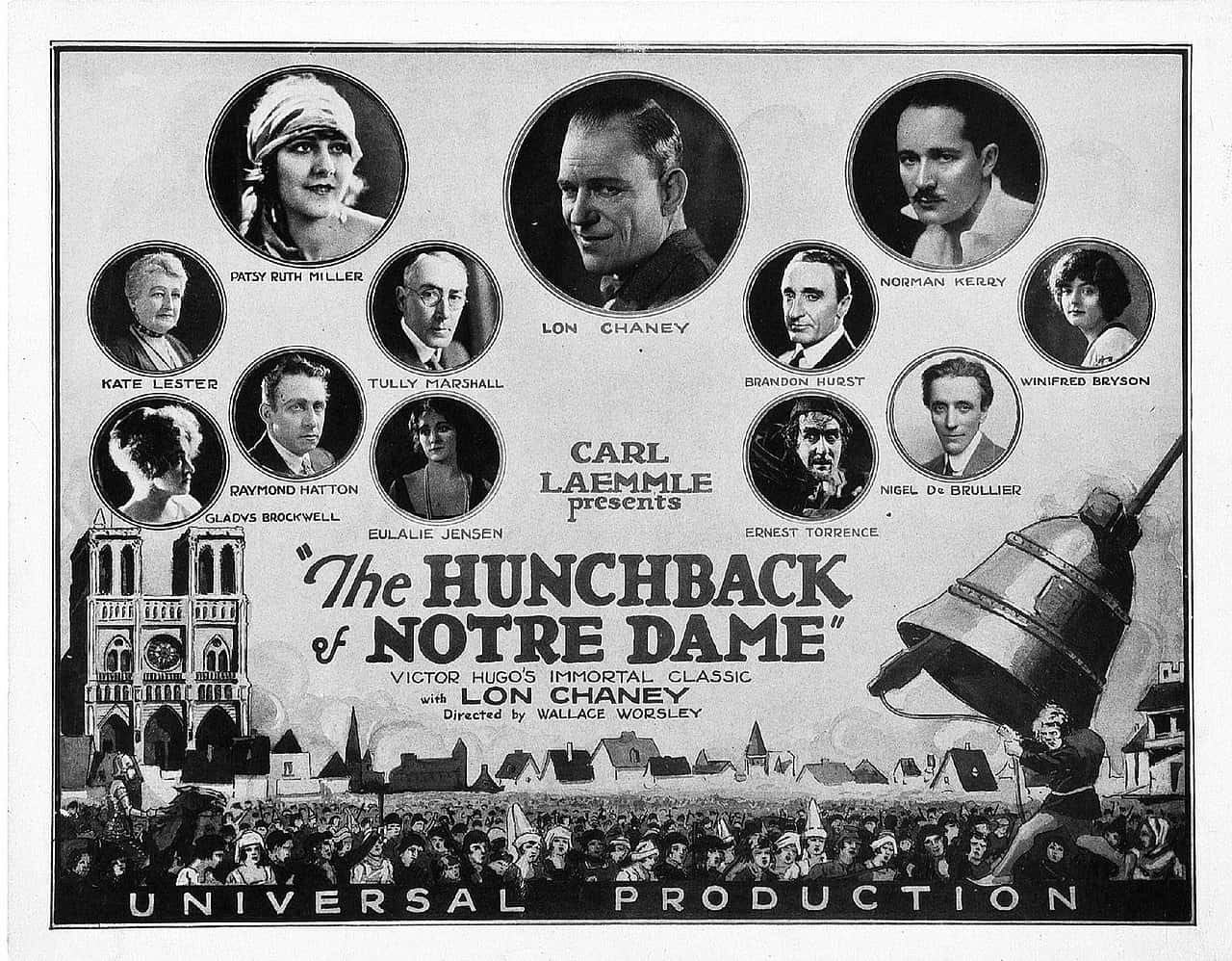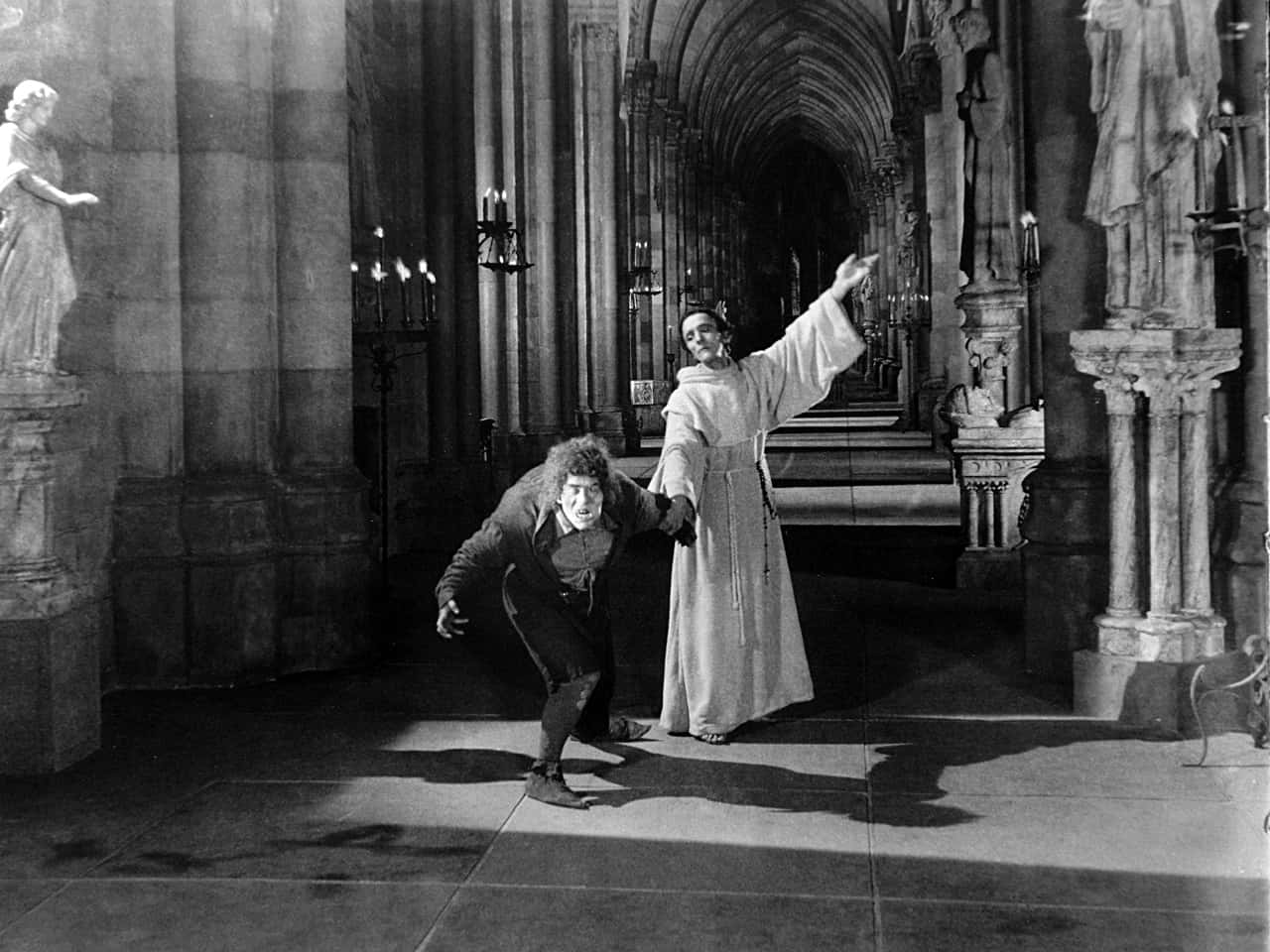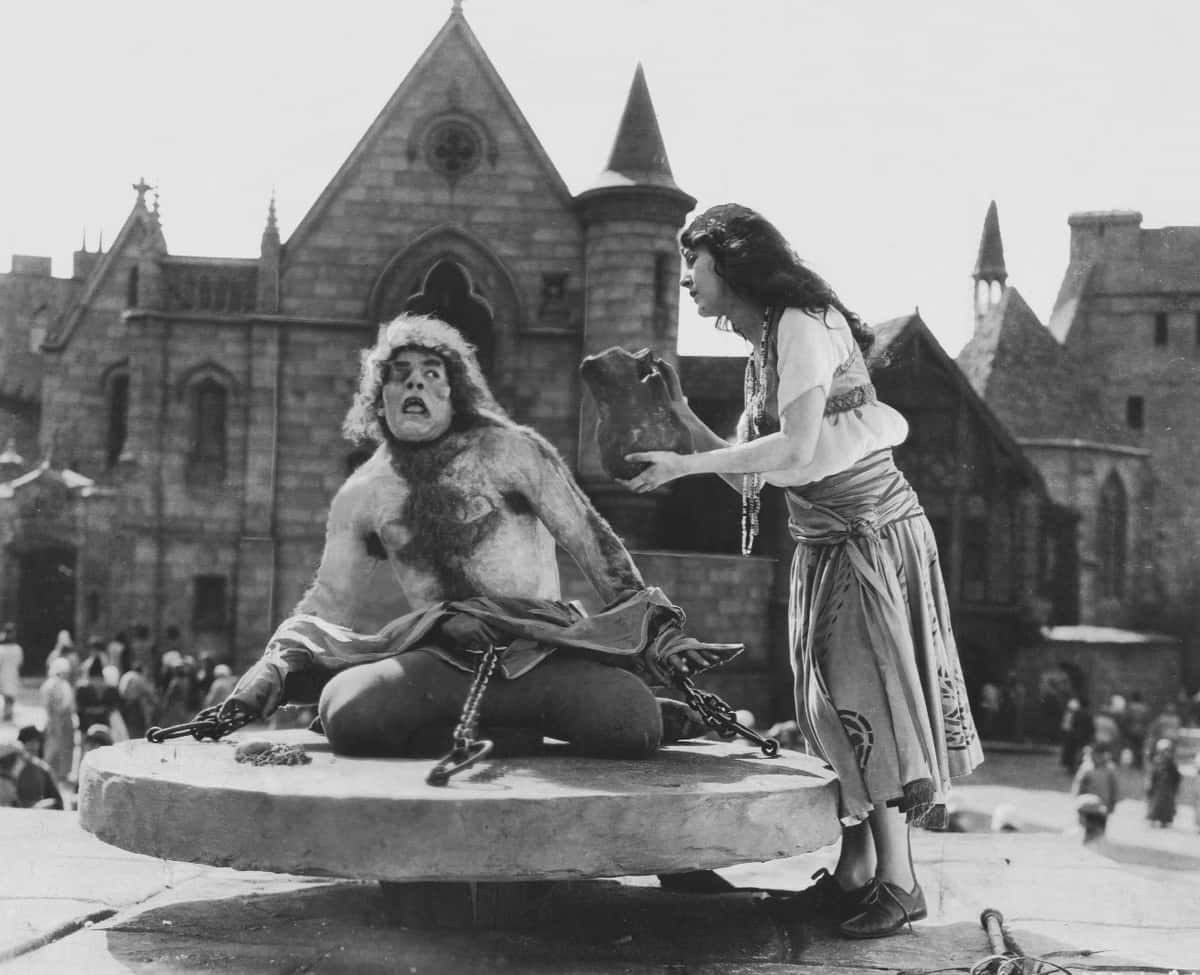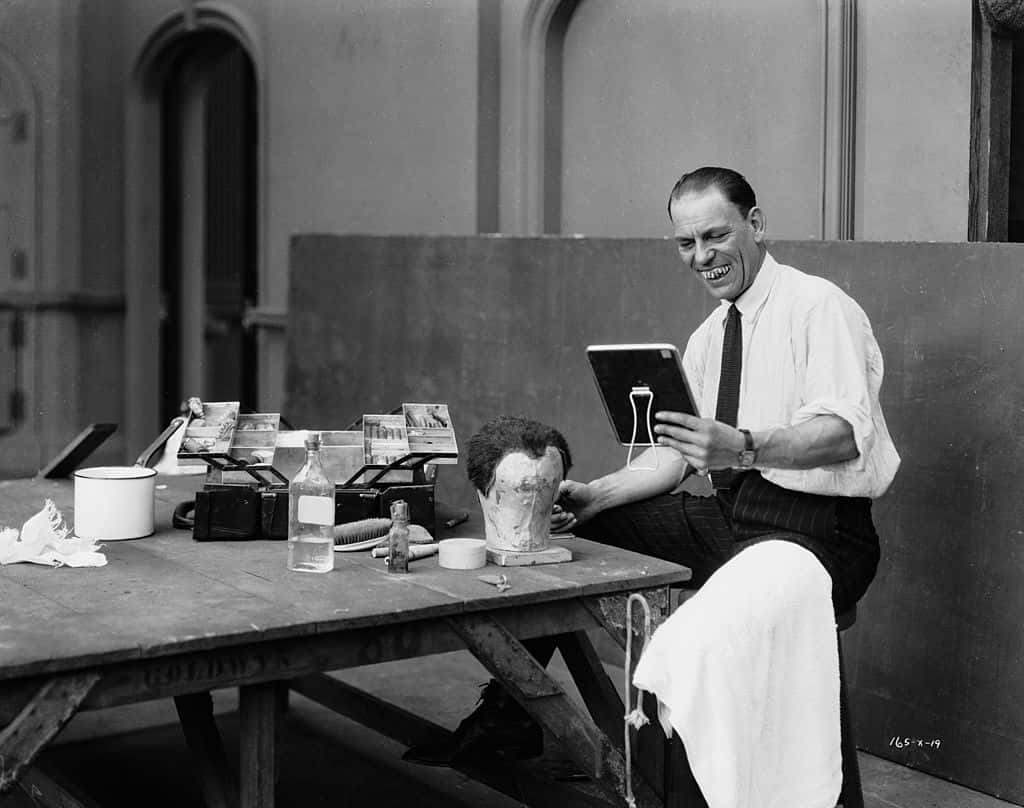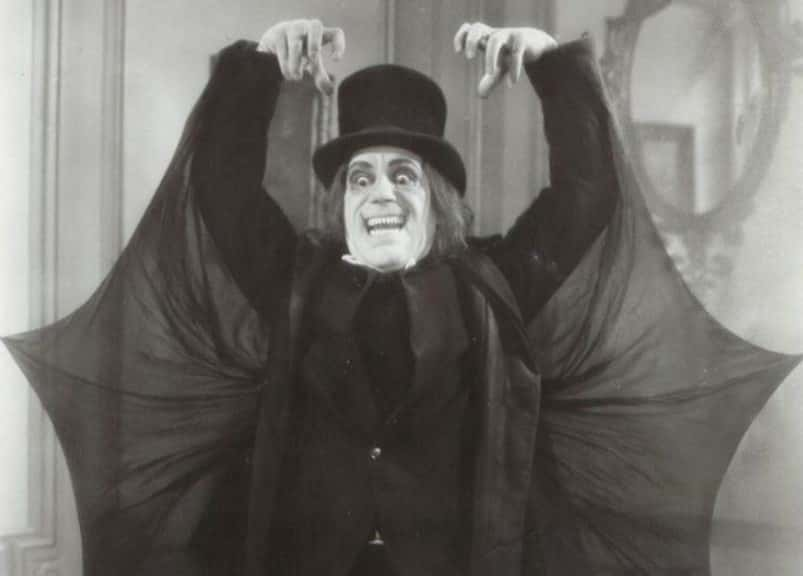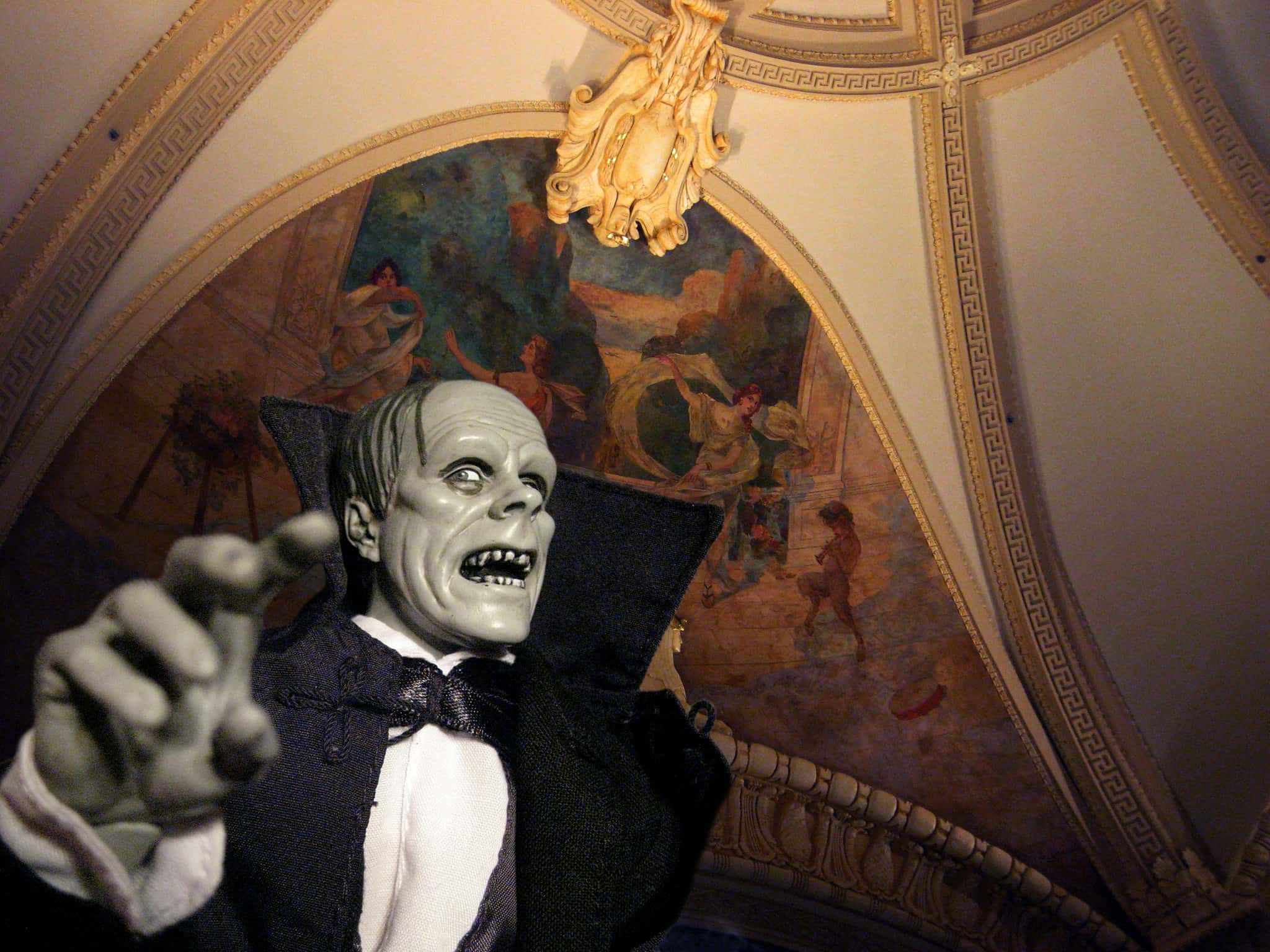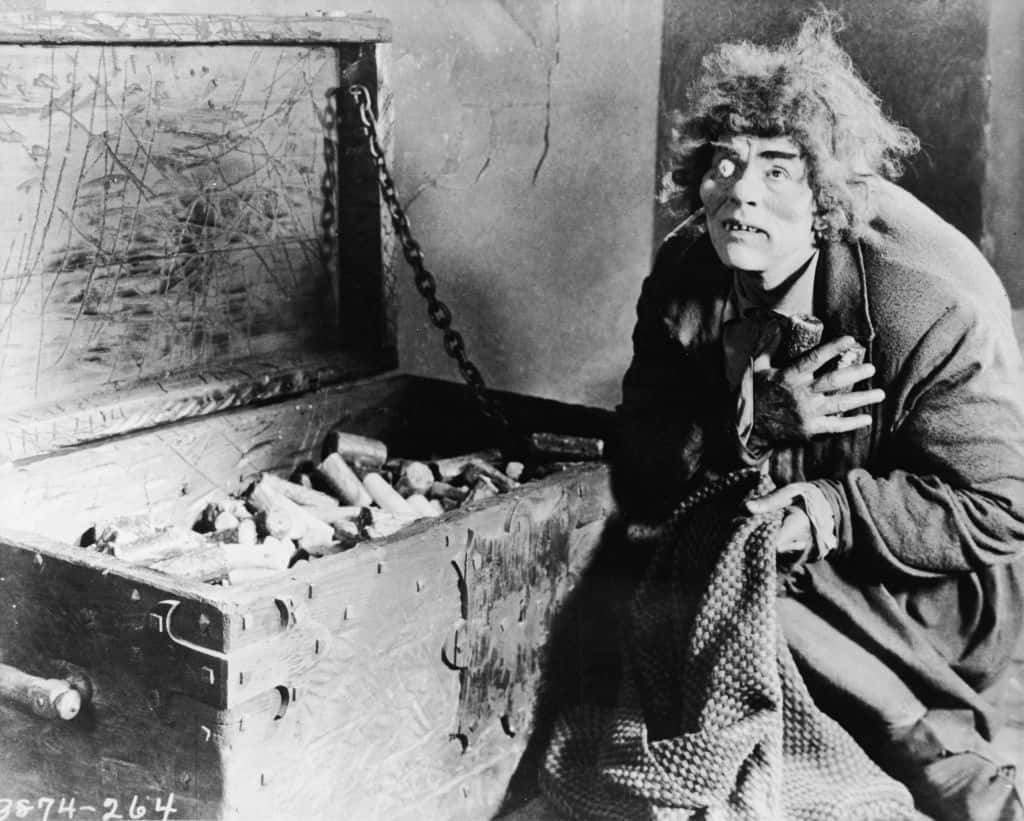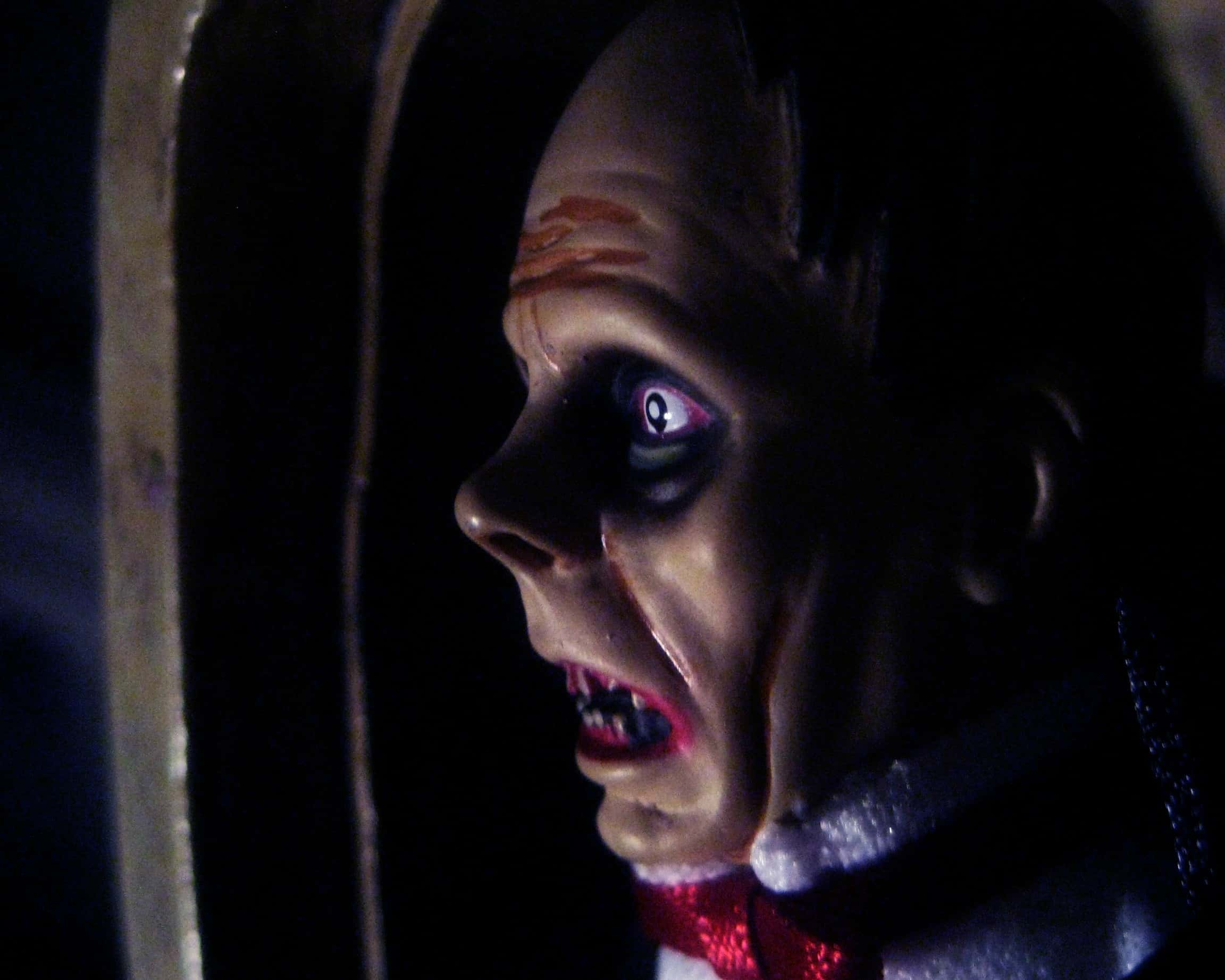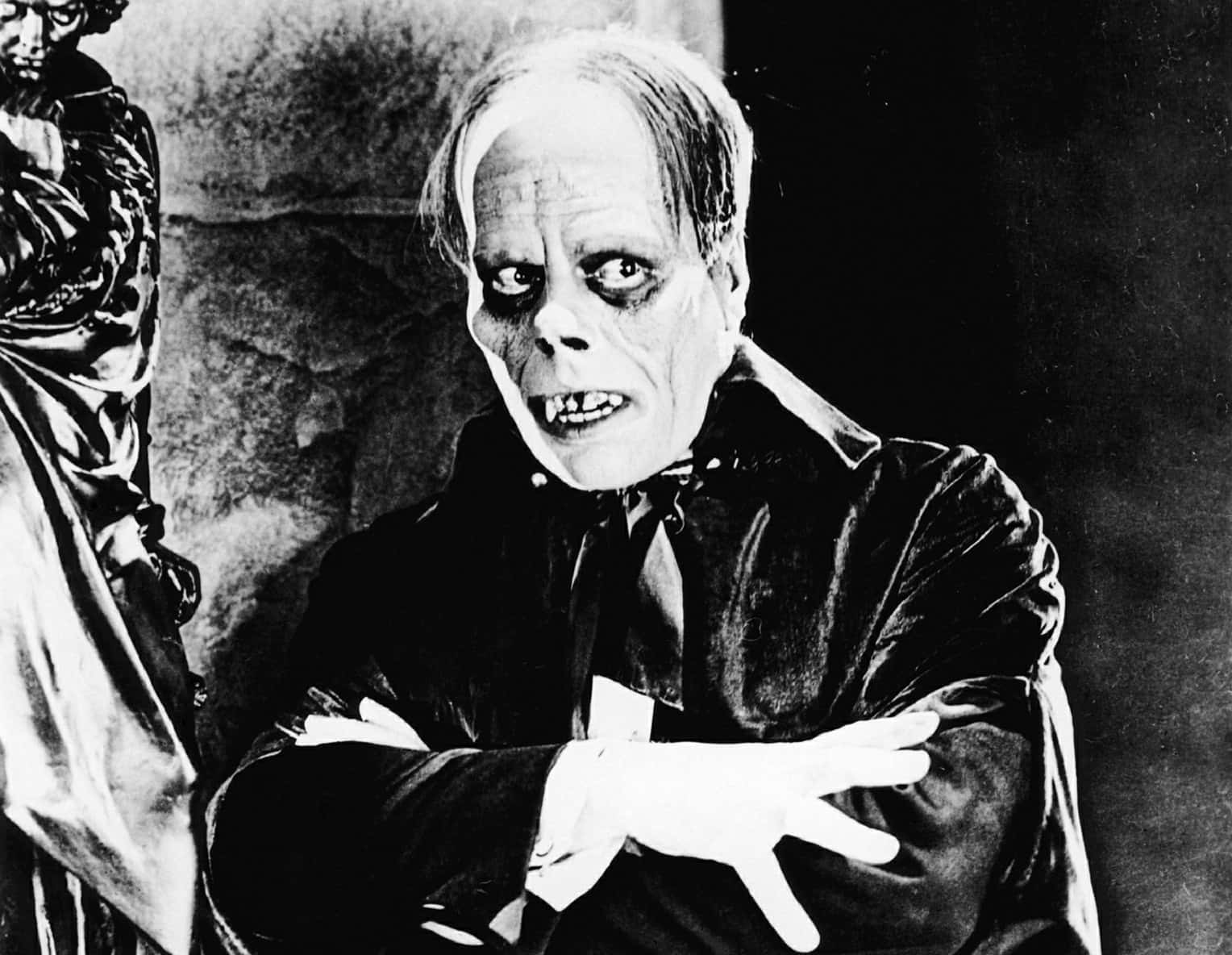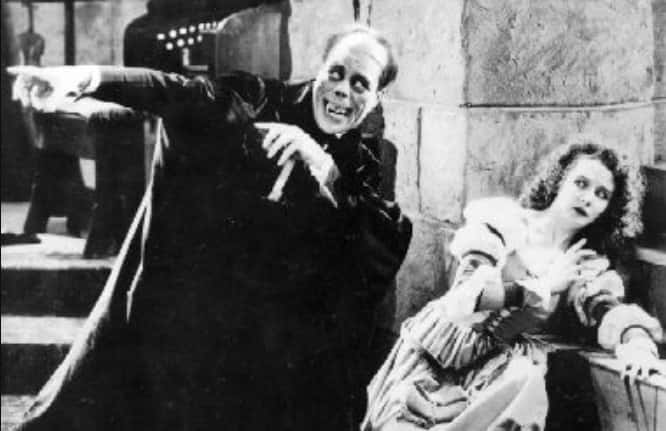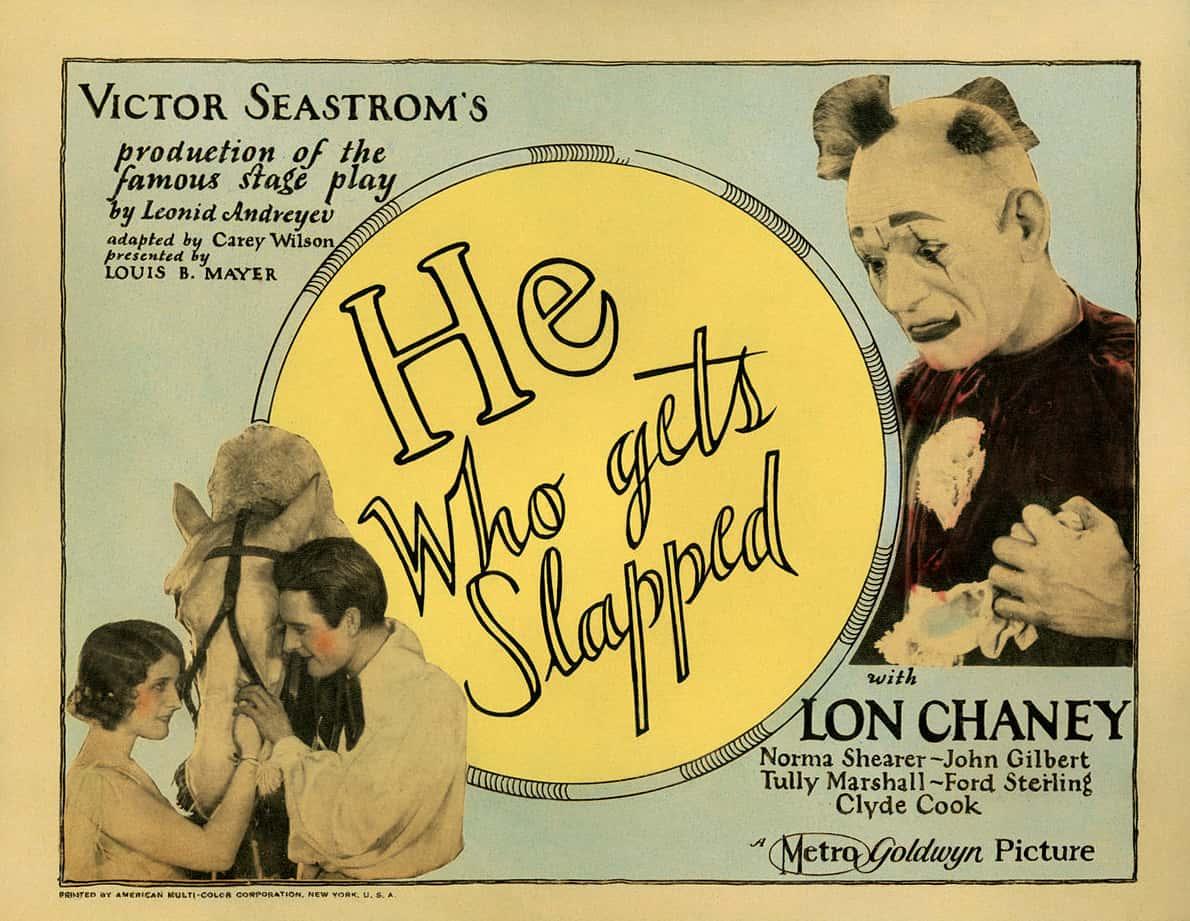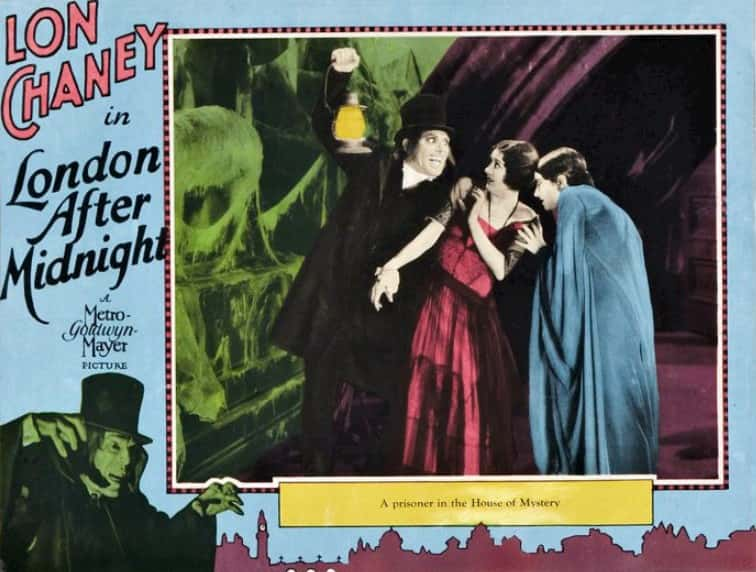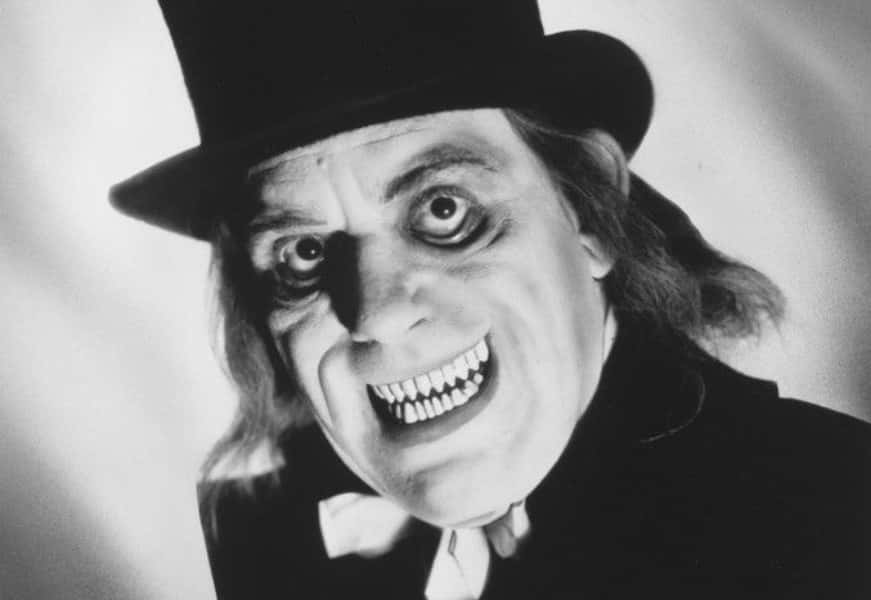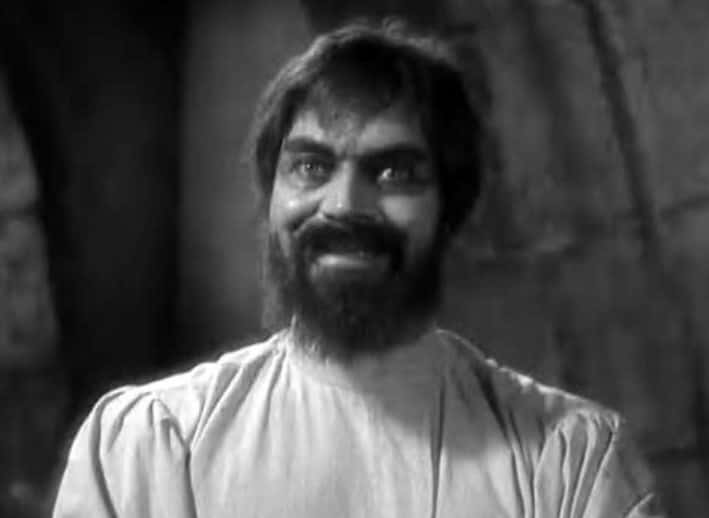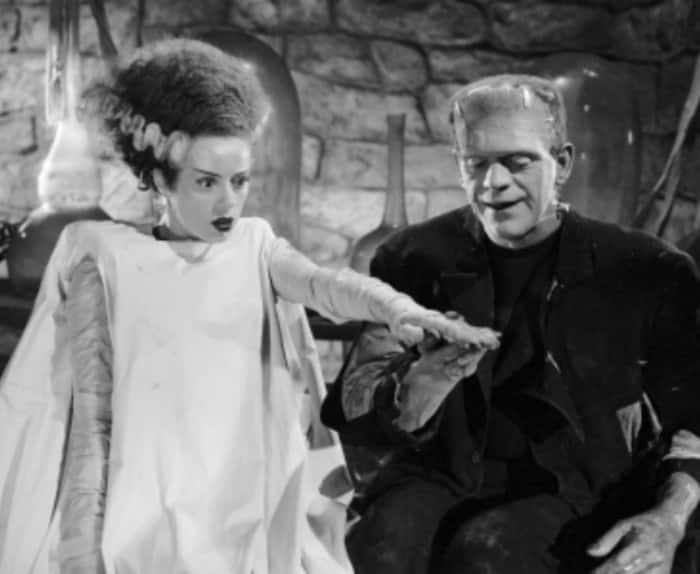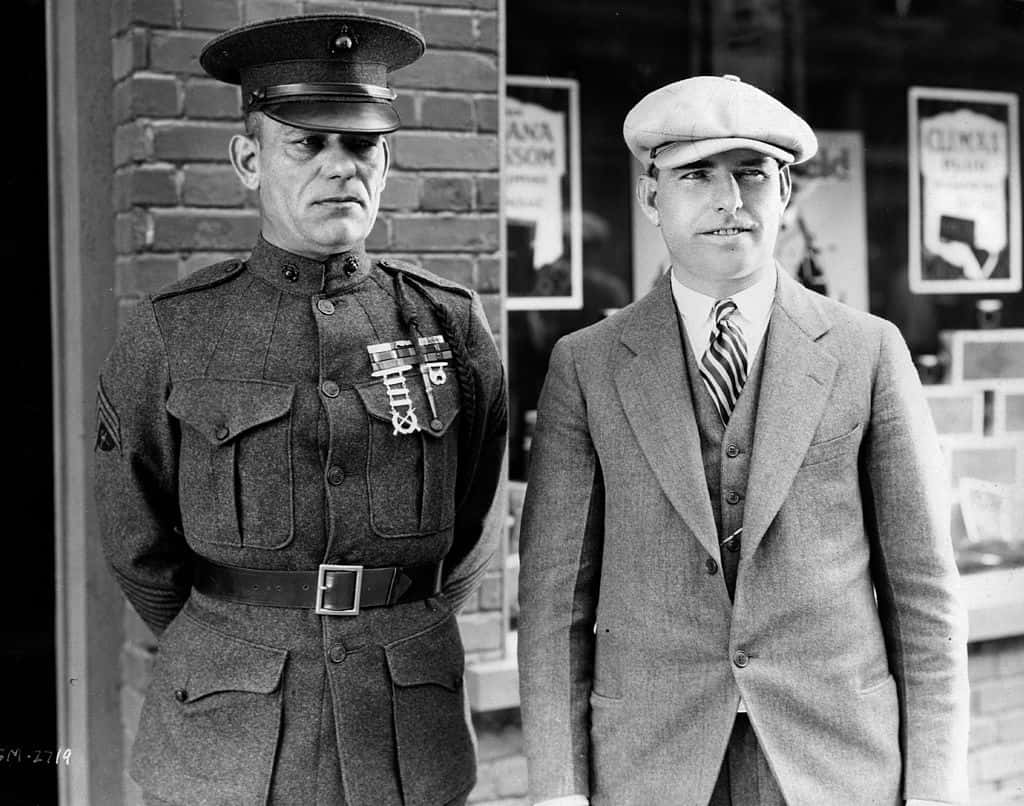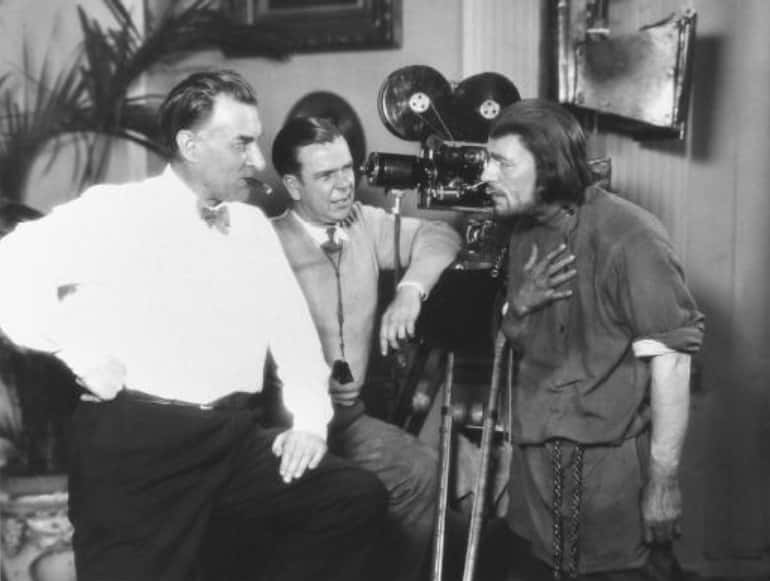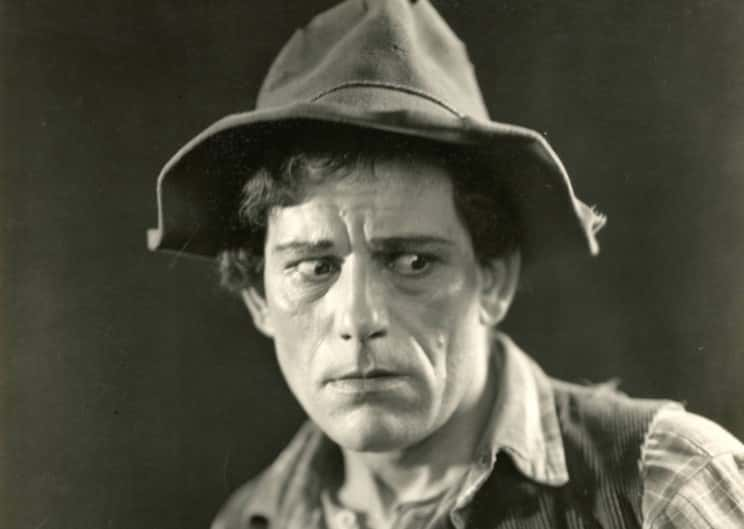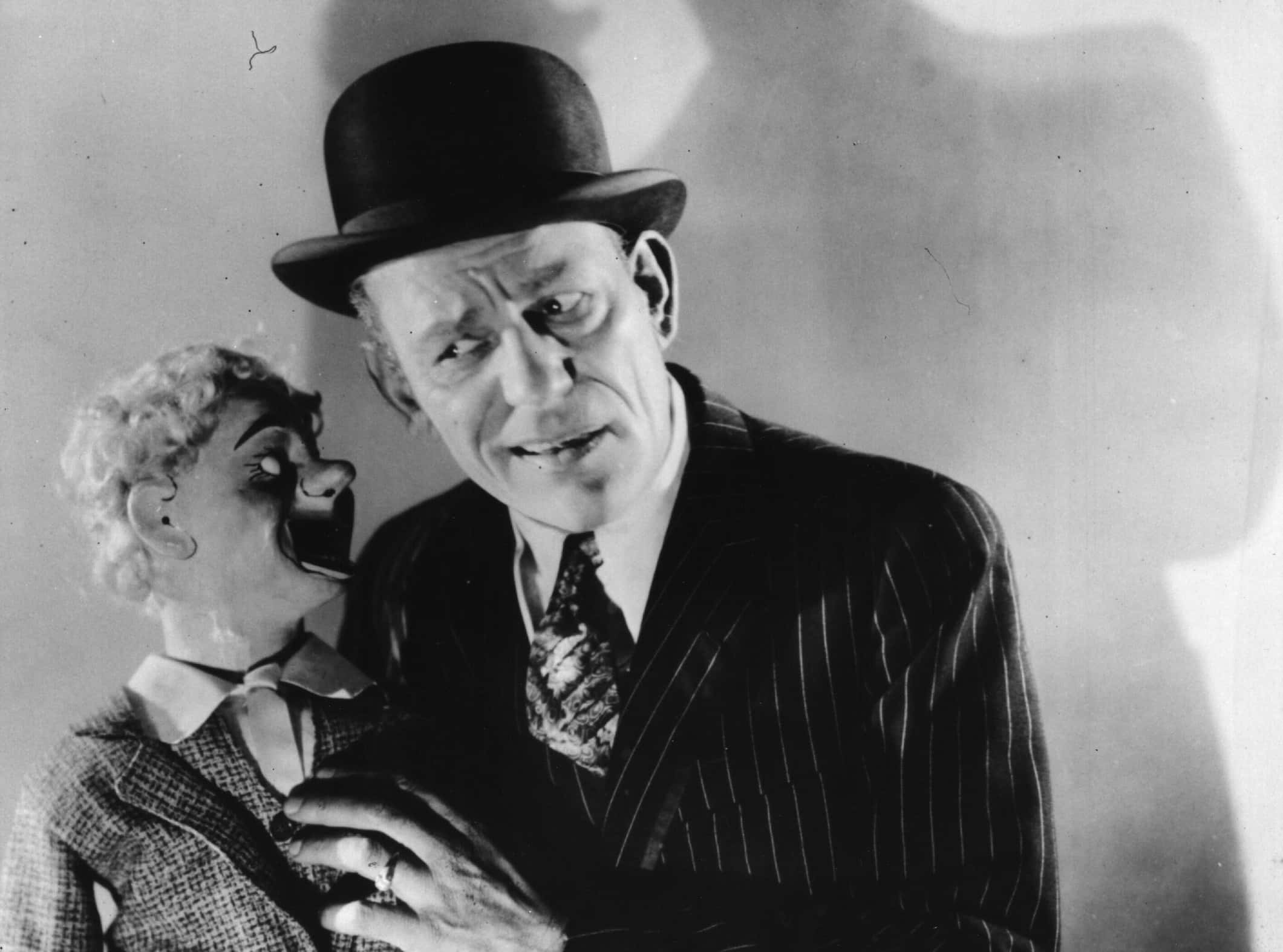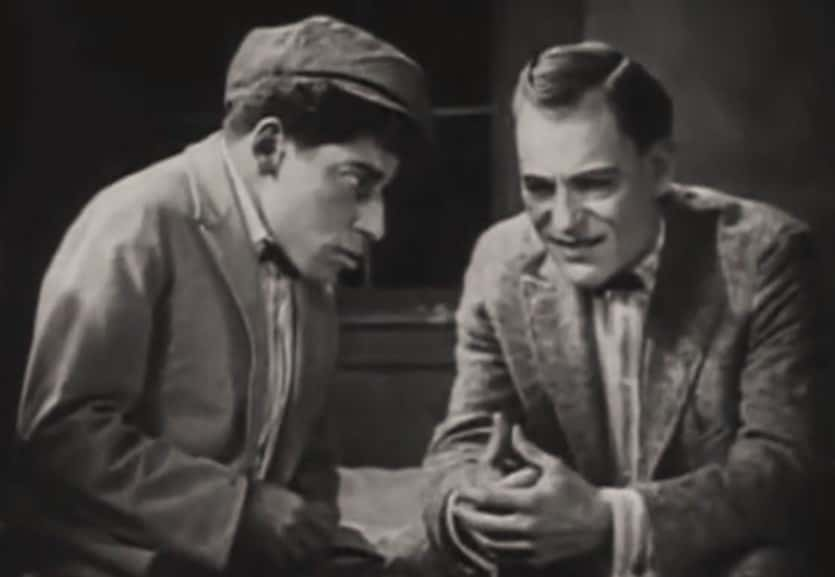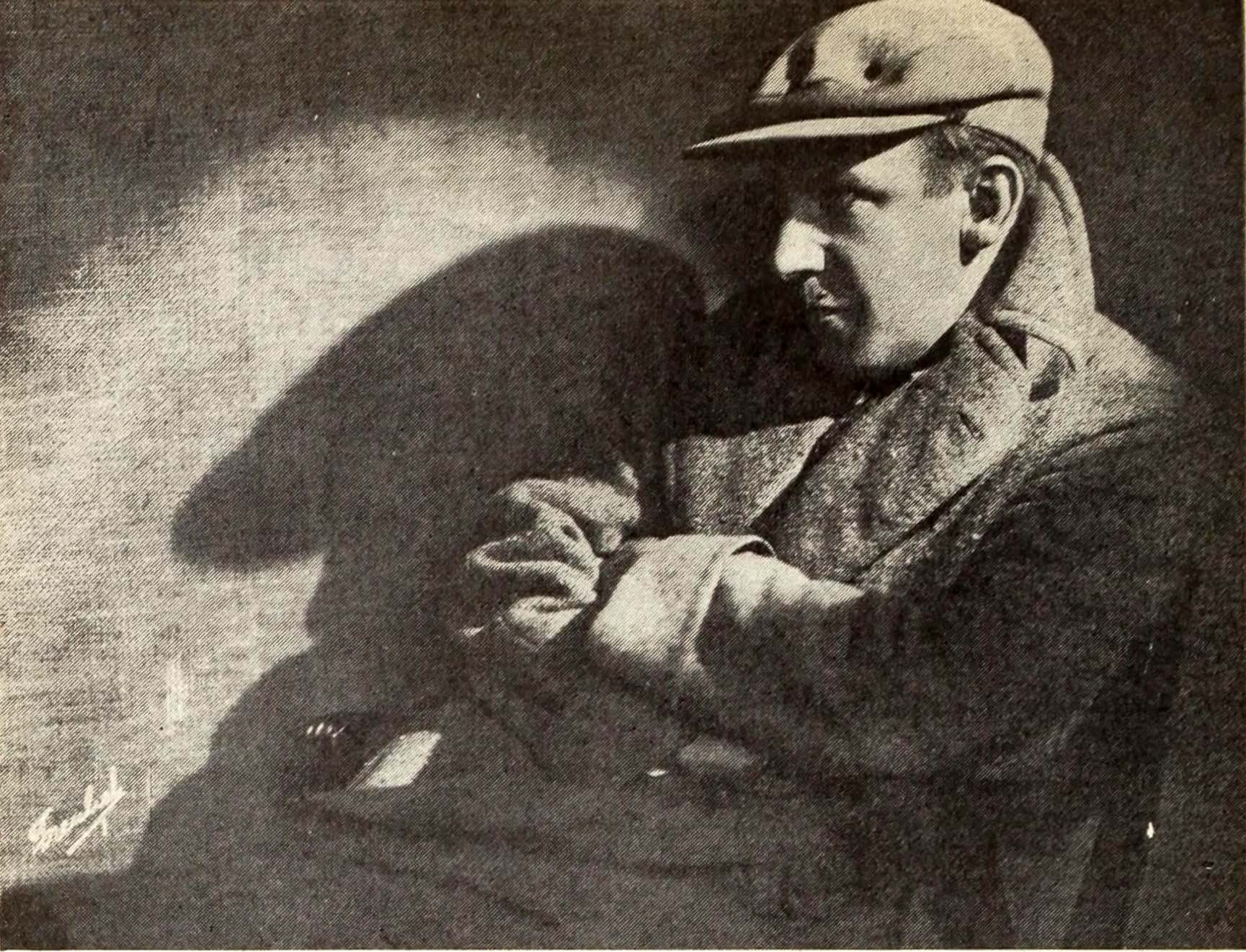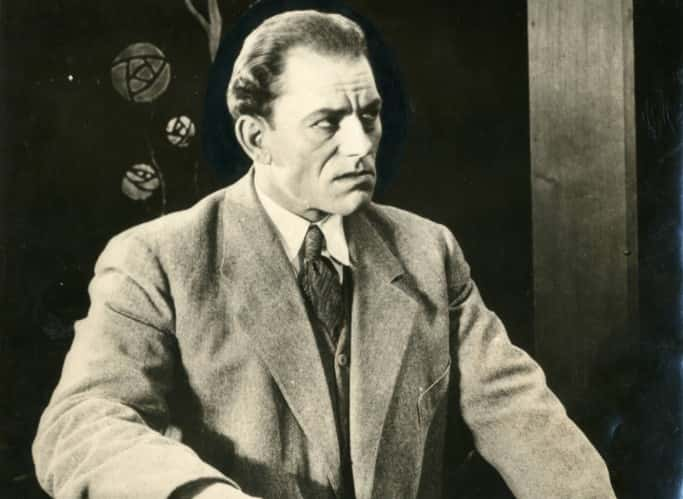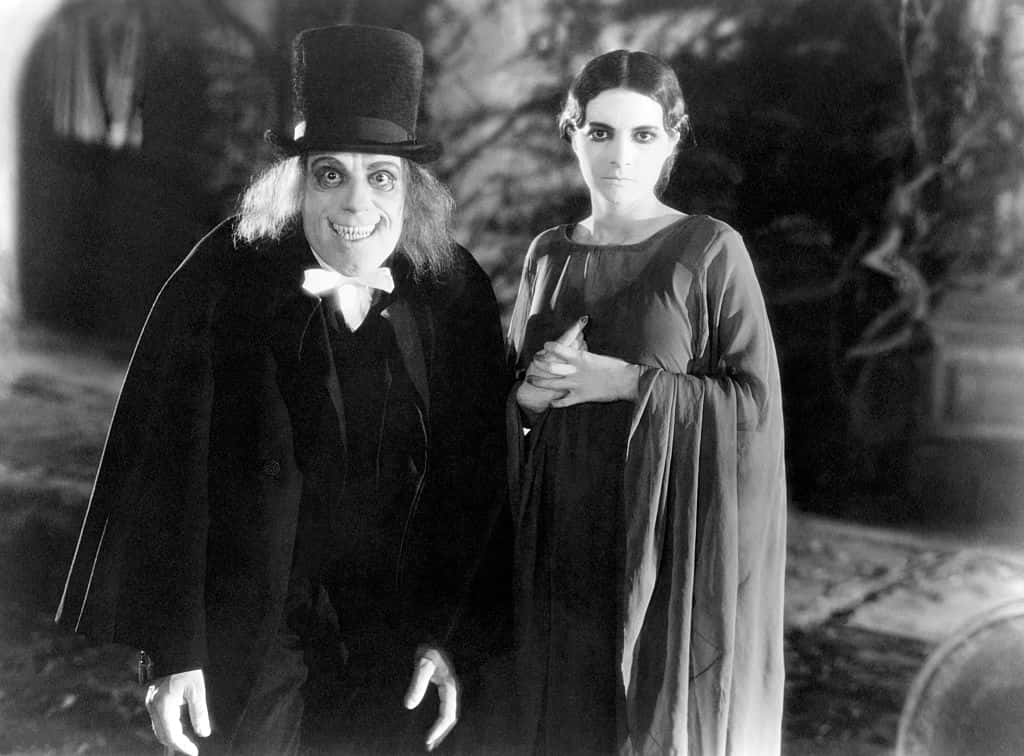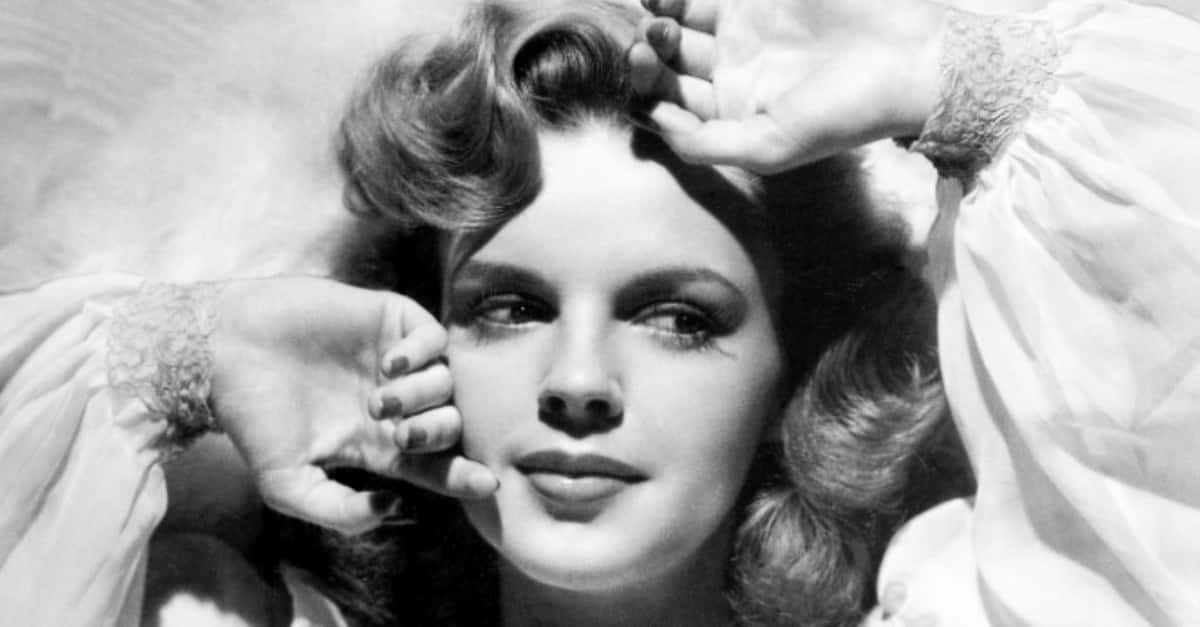Lon Chaney’s pioneering flair for makeup effects combined with his physical acting style helped him give birth to vile villains and ghastly ghouls who haunt our dreams to this day. But for someone who starred in over 100 movies, Chaney hated the spotlight. Some of his fans didn’t even know what the real Chaney looked like—which made his creations all the more convincing. Chaney himself said, "Between pictures, there is no Lon Chaney," but there was so much more to this movie monster. Here are 50 revealing facts about Lon Chaney.
1. He Acted Out
Leonidas "Lon" Chaney was born on April 1, 1883, to Frank and Emma Chaney, both of whom were deaf. They met at a school for the deaf founded by Emma’s father. As the child of deaf parents, Lon Chaney developed a talent for communicating his thoughts through pantomime—skills which would certainly come in handy later.
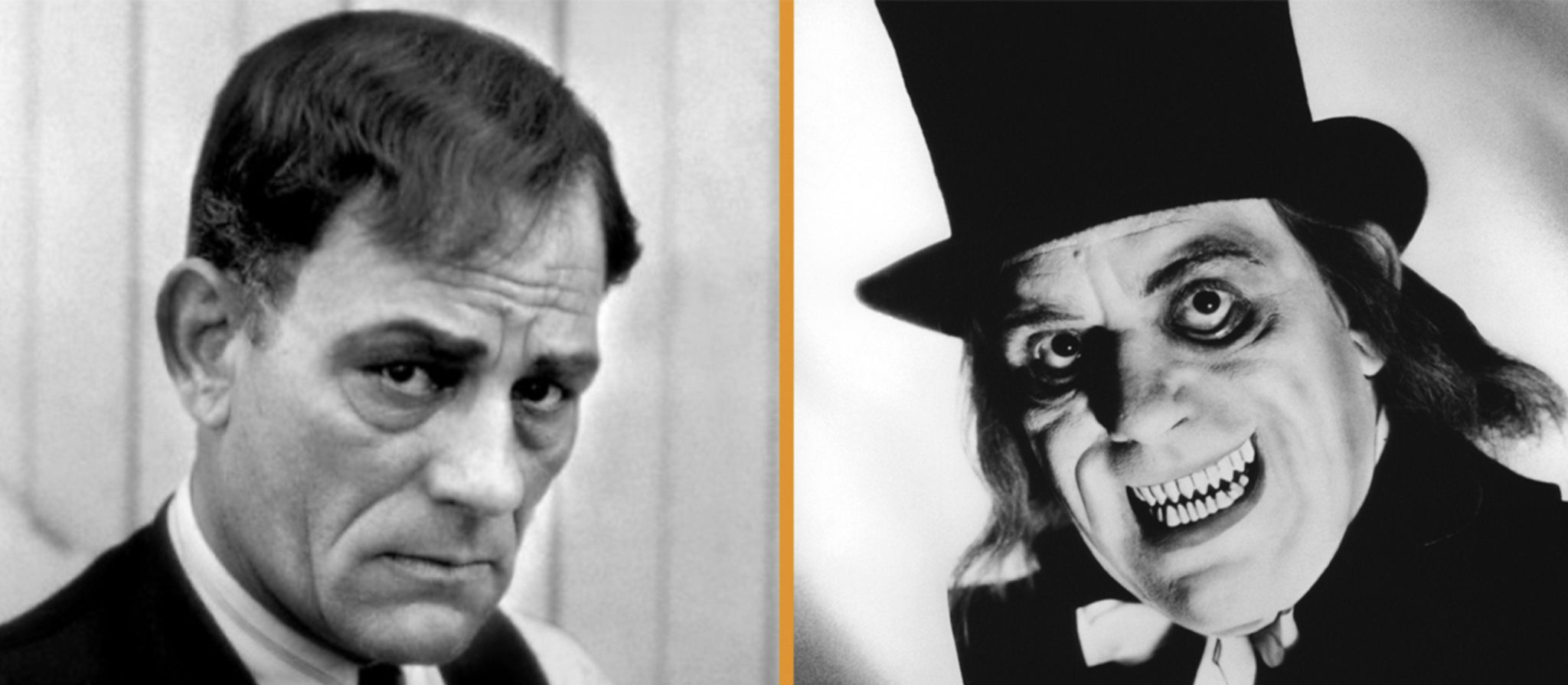
2. He Was A Little Tycoon
At 20, Chaney began putting his mime skills to use on the vaudeville stage. Chaney started a theater company with his brother; their main offering was a play they wrote and performed together called The Little Tycoon. The Little Tycoon was a small success, drawing the attention of a larger company who bought the brothers out.
3. He Married Young
Under new management, Chaney’s theatre company toured the Midwest’s vaudeville circuit. During a performance in Oklahoma City, Chaney met a 16-year-old chorus girl named Cleva Creighton. He fell hard—but their union was ultimately doomed to a heartbreaking end. In those early happy days though, they settled down and Chaney married Creighton within a year of meeting her.
The newlyweds performed together throughout the west, before finally settling down in Los Angeles.
4. He Was The Wolf Man’s Dad
A year after their marriage, the Chaney’s welcomed a son, Creighton Tull Chaney. Born into showbusiness, the Chaney baby started appearing on stage before he could even walk. Creighton Tull Chaney stuck with the family business, changing his name to Lon Chaney Jr. and making monster movie history of his own as "the Wolf Man".
5. There Was Trouble In Paradise
The Chaneys stopped touring to raise their family. Lon managed to find steady work as a stage manager, actor, and choreographer. Cleva was, however, less successful. One day, her torment and depression led to an utterly disturbing incident. Cleva stormed into the Majestic Theatre. In full view of Lon and his colleagues, Cleva drank a vial mercury chloride…
6. He Bowed Out Of Theatre
Cleva survived the poisoning, but she destroyed her singing voice. In the aftermath, the Chaneys endured a very public, very acrimonious divorce. The scandal ruined Chaney’s standing in the theater community. Unable to find any onstage acting gigs, Chaney resorted to accepting a job in the lowly world of motion pictures.
7. He Went Hollywood
In those days, movies were a way to make a quick, quiet buck. They lacked the prestige and legitimacy of the stage, but Chaney was desperate. He signed a contract with Universal Pictures in 1913 and immediately began appearing as a bit player. His first role was as an extra in the 1913 Wallace Reed short The Ways of Fate.
8. He Lied To His Own Child
While the Chaneys settled their divorce, their son went to live at a series of boarding schools. Though steadily employed, Lon couldn’t gain custody of his son until he remarried. But once he had done so, he made a twisted decision that would forever change him and his son’s life. Lon told Creighton that Cleva had passed on…but it was a lie.
Creighton didn’t learn the truth until he was a grown man.
9. He Knew What He Was Worth
At Universal, Chaney struck up a friendship with Joe De Grasse and Ida May Park. The husband-and-wife directing team rewarded Chaney’s friendship with juicy parts in their films. By 1917, Chaney was one of Universal’s biggest stars. Only, he wasn’t getting paid like a star. Chaney thought it was time he asked for a raise.
To Chaney’s dismay, the studio refused. One studio executive told him bluntly, "You’ll never be worth more than $100 a week". This was unacceptable. In defiance of Hollywood’s restrictive studio system, which locked players into long term contracts with a single studio, Chaney decided he would go it alone as a freelance actor.
10. He Got Lucky
Chaney’s gambit paid off almost immediately. In 1918, Lon Chaney landed a lead role as ruthless cattle rustler Hame Bozzam in the smash hit western Riddle Gawne. Pretty soon, he was getting offers from every studio in Hollywood—including Universal. At the height of his career as a freelancer, Chaney commanded up to $3,750 a week.
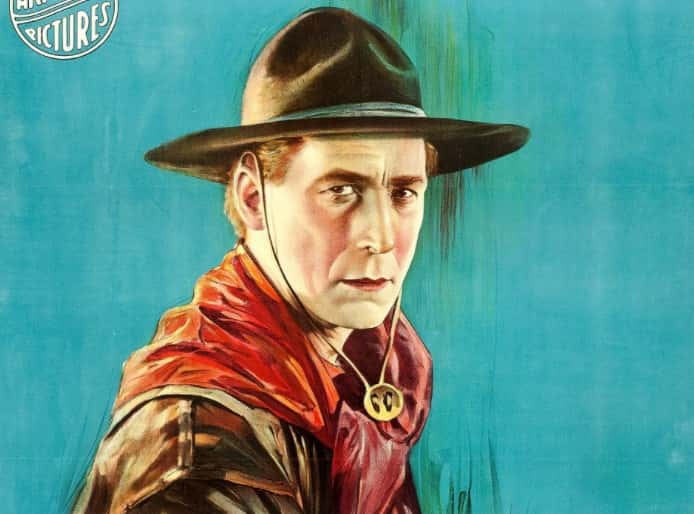 [/media-credit] Theatrical poster for Riddle Gawne starring William S. Hart and Lon Chaney Wikimedia Commons Theatrical poster for Riddle Gawne starring William S. Hart and Lon Chaney
[/media-credit] Theatrical poster for Riddle Gawne starring William S. Hart and Lon Chaney Wikimedia Commons Theatrical poster for Riddle Gawne starring William S. Hart and Lon Chaney
11. He Was A Makeup Artist
Part of Chaney’s allure was that he did his own makeup. Movies didn’t have teams of makeup artists like they do today. Chaney traveled with his own makeup kit and had a gift for creating convincing characters out of the simplest of tools. As a result, he often wound up playing a monstrous villain…and that suited him just fine.
12. He Lost His Legs (Temporarily)
1920’s The Penalty is a good example. Cast as a legless mobster, Lon Chaney tied his legs behind his back, and a made special leather harness so he could walk around on his knees. Chaney was so convincing as a double-amputee that a special tag had to be added to the end of the movie, showing Chaney walking up a flight of stairs.
13. He Put Work First
As they say, "No pain, no gain"—but the consequences of Lon Chaney’s dedication were absolutely chilling. His harness was so uncomfortable that he could only film a couple of minutes of The Penalty at a time. Weeks of walking on his knees left him with permanent muscle damage in his legs. Chaney gladly risked his health for his movies—a habit that lasted until, and maybe even hastened, the end of his days.
14. He Lost His Arms (Temporarily)
For the sake of symmetry, Lon Chaney played an armless man in 1927’s The Unknown. Alonzo the Armless not only threw knives, but played the fiddle and smoked, all with his feet. There are some things that even Chaney couldn’t fake however—those scenes were filmed by a body double. The body double, of course, had no arms.
15. He Tackled Projects Head On
Chaney’s makeup kit was rudimentary: grease paint, molding putty, brushes, false eyes, and "fish skin," a transparent material for creating scars. With just these few ingredients, Chaney easily created convincing, blood-curdling characters. But the kit also included a secret weapon: a lifelike wax mold of his own head.
The mold allowed Chaney to practice his creations without the use of a mirror, seeing them exactly as an audience would see them. Chaney perfected the look on the mold, then duplicated them on his own face. Today, Chaney’s makeup kit—including the model head—are on display at the Los Angeles County Natural History Museum.
16. He Was In The Greatest Movie Of All-Time
Lon Chaney played a scheming contortionist in the 1919 film, The Miracle Man. Written by Broadway hitmaker George M. Cohan, The Miracle Man became the top-grossing movie of the year. In 1921, readers of Photoplay magazine ranked it as the best movie ever made, ahead of Charlie Chaplin’s The Kid and DW Griffith’s Broken Blossoms.
17. He Rang The Bells Of Notre Dame
By 1923, Lon Chaney was one of the biggest stars in Hollywood. He could pick, choose, and even pitch his own films. With his newfound clout, Chaney selected a project which would allow him to create his most elaborate costume yet: The Hunchback of Notre Dame. Chaney oversaw every detail, even picking his director and co-stars.
18. He Did His Homework
Lon Chaney pulled out all the stops when bringing the hunchback to life. As always, he relied on his pantomiming and contortionist skills. He also consulted with people with actual physical deformities, not just to see how they looked and moved, but to understand their psychology as well. Chaney was the original method actor.
19. He Did All The Heavy Lifting
Chaney’s Quasimodo makeup involved a contact lens and heavy makeup over his right eye, a knotted wig, false teeth, and a brace which held his legs together. To complete the look, Chaney replicated Quasimodo’s characteristic hump with a rubber backpiece. According to some reports, this backpiece weighed as much as 72 pounds.
20. He Suffered For His Art
As usual, Chaney paid the price for his dedication. The leg braces and the backpiece gave him tremendous discomfort which continued for the rest of his life, and the constant obstruction of his right eye left him so short-sighted that he needed glasses. Once again, Lon Chaney had put his craft ahead of his own wellbeing.
21. His Knowledge Of Make-Up Was Encyclopedic
A constant experimenter and innovator, Chaney practically invented movie make-up effects. He developed tools and techniques that are still used by Hollywood makeup artists today. Chaney’s knowledge of stage and movie makeup was so complete that he literally wrote an article on the subject for the Encyclopedia Britannica.
22. He Wrote About Crime And Punishment
Incidentally, Chaney was also an expert on "penology," the study of crime and punishment. He wrote many articles on the subject and became a passionate advocate for prison reform. Having spent his career playing tortured, misunderstood outcasts, Chaney had enormous empathy for prisoners and worked to improve their treatment.
23. He Wigged Out
Though he preferred to use his own natural hair as much as possible (whitening it with "neck white" when necessary), Chaney’s costumes sometimes called for wigs. He saved the wigs from each of these roles and soon amassed a collection of hundreds, which he carefully labeled and checked once a month for moth infestations.
24. He Had A Team
Chaney’s wigs were provided by his trusted "wig guy," a Yugoslavian wigmaker named Zan. For those characters that required special dental effects, Chaney turned to his personal dentist, Dr. James L. Howard. Both men assisted Chaney in creating his characters for The Hunchback of Notre Dame and The Phantom of the Opera.
25. He Bugged People
Lon Chaney was so good at outfitting himself for his characters that moviegoers often believed he was just like them. Some even thought Chaney really was deformed like his Hunchback character. His ability to fully inhabit any sort of role made him the punchline of a popular joke: "Don’t step on a spider," people would say, "it might be Lon Chaney!"
26. He Kept The Phantom Hidden
1925 saw Chaney’s crowning achievement—and one of the most shocking moments in film history. His reveal as the titular Phantom of the Opera was absolutely mind-blowing to audiences of the day. The makeup was, of course, devised by Chaney himself and he guarded it jealously. No photographs were allowed. Even Chaney’s co-star, Mary Philbin, didn’t know what to expect.
 The Phantom of the Opera (1925), Universal Pictures
The Phantom of the Opera (1925), Universal Pictures
27. He Was A Prankster
Lon Chaney allowed just one person to see his Phantom makeup—principal cameraman Charles Van Enger. Once he had the look completed, Chaney invited Van Enger into his dressing room. He sat with his back to the door, waiting. While Van Enger was getting himself comfortable, Chaney wheeled around suddenly to reveal… the Phantom!
Van Enger started, staggering backwards over a stool, and landed uncomfortably on his back. By his own admission, almost wet himself. Injured, terrified, and furious, the cameraman swore at Chaney. Chaney merely spat out his false teeth and replied, "Never mind, Charlie. You’ve already told me everything I needed to know".
28. He Made Them Faint
So how did Chaney achieve such a frightening makeup? Well, he went to great—and occasionally disgusting—lengths. Like any good breakfast, it all started with eggs. Chaney put egg membrane over his eyes to give them a cloudy look. He pinned his ears, stuffed his cheeks with cotton and collodion, strapped his nose back with wires and fish skin, then topped it all off with greasepaint.
Chaney donned a wig of stringy hair, and a dental piece which left him unable to speak. The effect is truly terrifying: Chaney’s Phantom is sunken-eyed, sallow-cheeked, and pig-nosed, his mouth left in a permanent, pained scowl. Reports from the movie’s premier claimed that audiences fainted when the Phantom revealed himself.
29. He Spawned A Product Line
To take advantage of the association between Lon Chaney, The Phantom of the Opera, and makeup effects, Universal released a line of products called Phantom Cosmetics. Ironically, Phantom Cosmetics was not a monster makeup kit, but a women’s beauty line. Phantom Cosmetics was endorsed by Chaney’s co-star, silent film star Mary Philbin, rather than Chaney himself.
30. He Covered For His Director
Director Rupert Julien insisted The Phantom of the Opera could not be done without Chaney in the title role. Despite this endorsement, Julien and Chaney had a relationship that was icy—until one day, it blew up. They barely talked during filming and fought frequently. At one point, Julien stormed off set, leaving Chaney to direct parts of the film himself.
31. He Made The Lion Roar
Lon Chaney starred in He Who Gets Slapped (1924), playing a vengeful clown. The film was the first made, and one of the first to be released, by the newly formed Metro-Goldwyn-Mayer Studios. He Who Gets Slapped has a special place in film history for being the very first film to feature the MGM’s iconic "roaring lion" intro.
32. He Visited London After Midnight
Chaney took on a double-role for 1927’s London After Midnight, playing a detective and the movie’s villainous "Man in the Beaver Hat". London After Midnight was among the highest-grossing films of the year, but the lone surviving print of the film was lost in the 1967 MGM vault fire, and today it’s considered a lost classic.
33. He Was Iconic
London After Midnight may be lost, but the "Man in the Beaver Hat" remains an iconic character. Stills from the movie show Chaney in a top hat, with bulging eyes and razor-sharp teeth. If that’s sounds familiar, it’s because the Man in the Beaver Hat inspired the titular monster from the 2014 horror flick The Babadook.
34. He Believed In Equal Opportunities
While his star rose, Chaney never forgot his friends. For example, he worked hard to find early roles for his friend, Noble Johnson. Chaney and Johnson had grown up together in Colorado. Johnson had a harder time breaking into the movie industry, however: producers at the time were less interested in hiring Black actors.
35. He Made Way For New Monsters
Lon Chaney was also quick to lend his expertise to young actors new to the world of motion pictures. His pantomiming skills and experience playing silent lurching monsters came in handy for a young Boris Karloff, later famous for playing Frankenstein’s monster and the mummy in Universal’s wildly successful horror franchise.
36. He Was A Bit Of A Loner
As befits a master of disguise, Chaney was very protective of his personal life. He famously did not grant autographs, and he did not allow his image to be shown in public without some sort of costume or mask. He much preferred to spend his free time at his cabin in the Sierra Nevada, flyfishing and practicing his makeup.
37. He Supported The Troops
Chaney didn’t even attend the premiers of his own movies. The one exception was the 1926 picture Tell It To The Marines. Chaney was extremely proud of the picture, even calling it his favorite of all his films. Incidentally, Tell It To The Marines was one of the few films in which Chaney did not wear any sort of disguise.
38. He Was An Honorary Marine
Chaney’s choice to forego makeup was an artistic one. A highly realistic film, Tell It To The Marines was the first movie made with the support of the US Marine Corps. The movie’s success supposedly led to a rise in enlistment. For his commitment to the veracity of the film, Chaney was granted an honorary rank in the USMC.
 Tell It to the Marines (1926), Metro-Goldwyn-Mayer
Tell It to the Marines (1926), Metro-Goldwyn-Mayer
39. He Was Good…To A Fault
We don’t know how many movies Chaney made. For instance, while historians estimate the number to be somewhere between 157 and 162, Chaney would likely have done a lot of uncredited extra work early in his film career. These roles gave Chaney an opportunity to try out new disguises—making it nearly impossible to pick him out onscreen.
40. Most Of His Work Is Missing
Film historians believe that more than 100 of the Chaney films that we do know about are lost. Those 100 films include every major milestone of his career: his first credited film (Poor Jake’s Demise), his first screenplay (The Menace to Carlotta), his directorial debut (The Stool Pigeon), and his gothic English masterpiece, London After Midnight.
41. The Unknown Was A Needle In A Haystack
One of Chaney’s movies, The Unknown, was considered lost on a technicality. A copy of the film existed somewhere in the archives of France’s Cinémathèque Francaise; unfortunately, it had been misplaced among a collection of unidentified films, all labeled "Unknown". The archivists spent decades trying to find it again.
 The Unknown (1927), Metro-Goldwyn-Mayer
The Unknown (1927), Metro-Goldwyn-Mayer
42. He Could Do It All
Lon Chaney built his reputation on stunning transformations into grotesque monsters, but he wasn’t just the Man of a Thousand Faces—he was more like the Man of a Thousand Talents. For example, those who witnessed his performances firsthand said that Chaney was an entertaining comedian, an elegant dancer, and a pretty good singer, too.
43. He Was A Chatterbox
Chaney got to put that singing voice to good use in 1930, when he became one of the last big silent film stars to make a "talkie". However, The Unholy Three gave Chaney a real challenge: in his first onscreen speaking role, Chaney voiced five different characters—a ventriloquist, a dummy, an old woman, a little girl, and a parrot.
44. He Took An Oath
Chaney could change his voice as easily as he could change his face. His performance in The Unholy Three was so unbelievable that MGM insisted on publishing a sworn affidavit in which Chaney confirmed that all five voices were his. The document was sworn before a notary public for the County of Los Angeles on May 19, 1930.
45. He Vanted To Suck Your Blood!
The famous silent filmmaker Tod Browning directed The Unholy Three. Browning and Chaney had already collaborated on films including The Unknown and London After Midnight. Their partnership was a fruitful one, and Browning planned to hire Chaney for his next project—a gothic horror movie based on Bram Stoker’s famous vampire novel, Dracula. Sadly, it was never to be…
46. He Went Suddenly
Sadly, just before Dracula began production, tragedy struck. Chaney fell ill, and the diagnosis was dire. A doctor told him that he had bronchial lung cancer. His condition rapidly worsened, and within seven weeks of the release of The Unholy Three, Chaney succumbed to the disease. He was just 47 years old.
47. He Had Something Stuck In His Throat
True to character, Chaney’s condition may have been exacerbated by one of his movies. Unfortunately, while filming Thunder (1929), Chaney inhaled some artificial snow, made of gypsum. The particles lodged in his throat, spurring an infection. Bit by bit, Chaney had sacrificed his body to his movies. This time, the movies took his lungs.
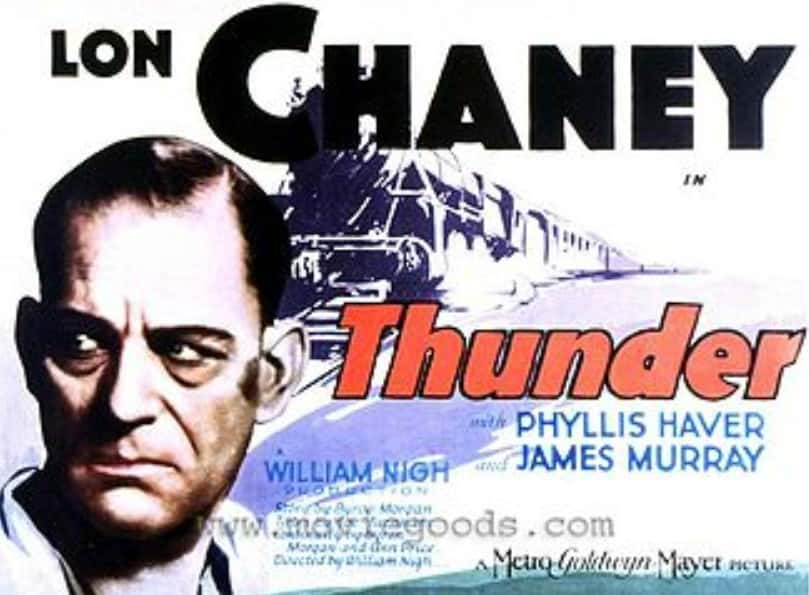 Wikipedia
Wikipedia
48. He Was Irreplaceable
Sadly for Chaney, he missed out on many other roles as well. Before his untimely illness, producers had Chaney penciled in for several projects, including The Sea Bat, The Phantom of Paris, The Big House, and The Bugle Sounds. Of course, the films all went ahead with new actors in Chaney’s role, but none of them made much of a splash at the box office.
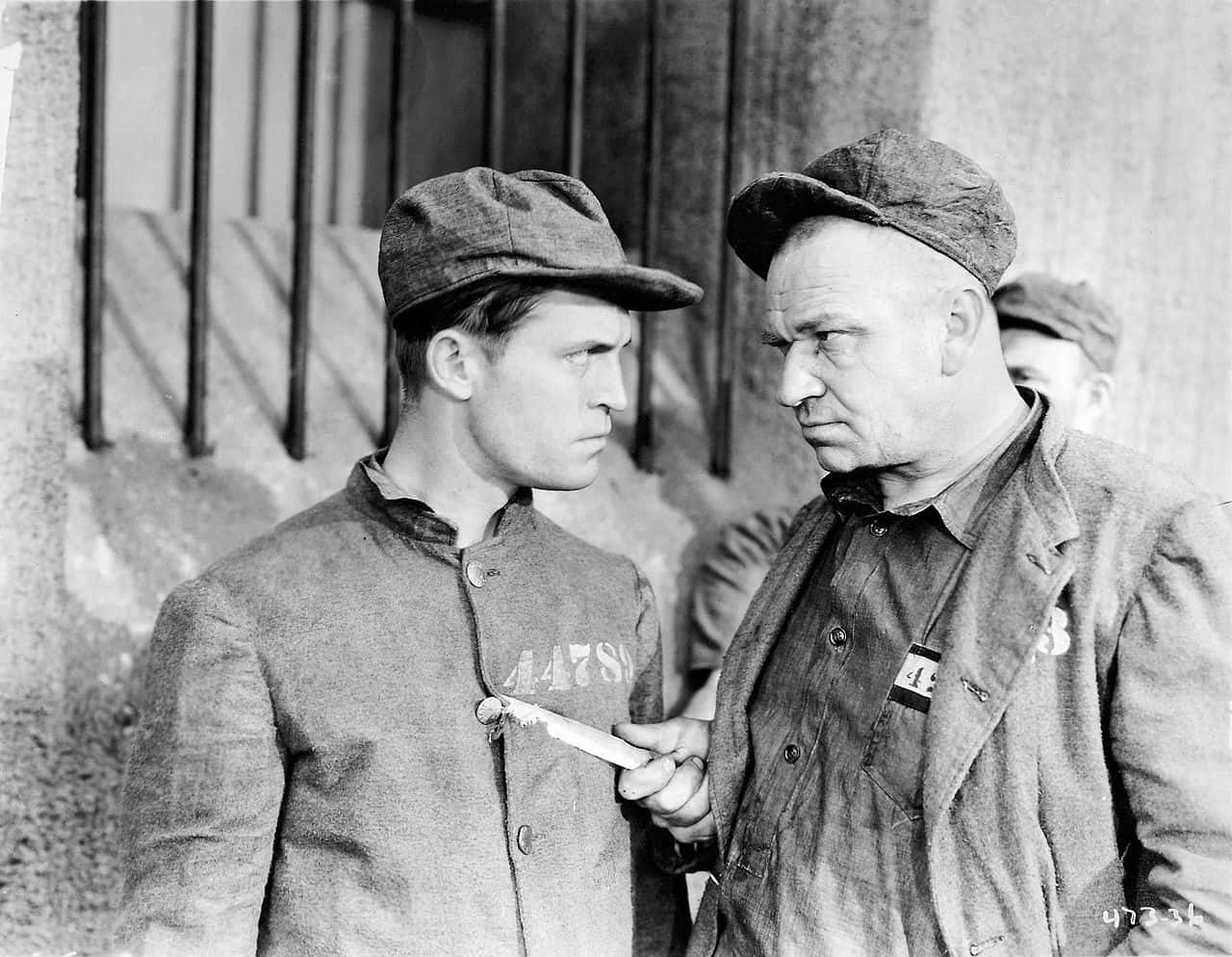 [/media-credit] Still from The Big House Wikimedia Commons Still from The Big House
[/media-credit] Still from The Big House Wikimedia Commons Still from The Big House
49. He Went Quietly
Lon Chaney's grave sits alongside his father's in the Forest Lawn Memorial Cemetery in Glendale, California. Sadly, Chaney’s grave remains unmarked—but it's a gesture that feels eerily appropriate for the attention-shy actor. On the day of Chaney’s funeral, MGM Studios paused and held a moment of silence to honor the Man of a Thousand Faces.
50. He Was A Scapegoat
The Man in the Beaver Hat was so unnerving that it became tied up in an infamous crime. During his trial, one criminal tried to blame Chaney for his wicked deeds. According to the defense, Chaney’s appearance drove their defendant insane, prompting him to commit his particularly heinous crime. Maybe if the judge had seen the movie, he’d have found the defense more convincing.
Sources: 1, 2, 3, 4, 5, 6, 7, 8, 9, 10, 11, 12, 13, 14, 15, 16, 17, 18, 19


